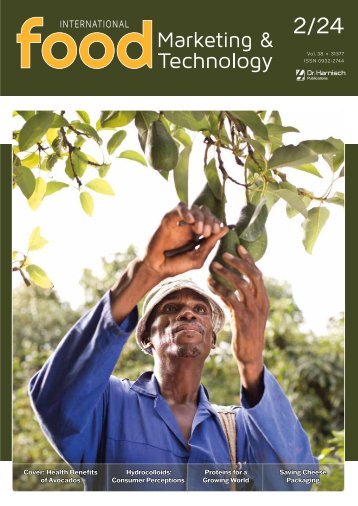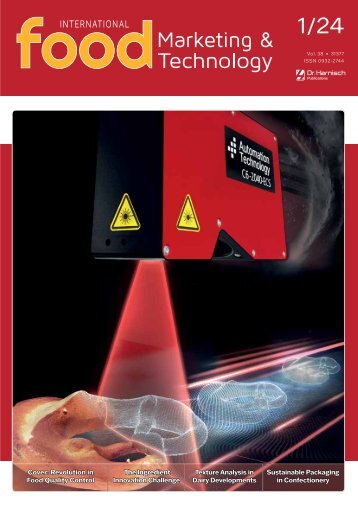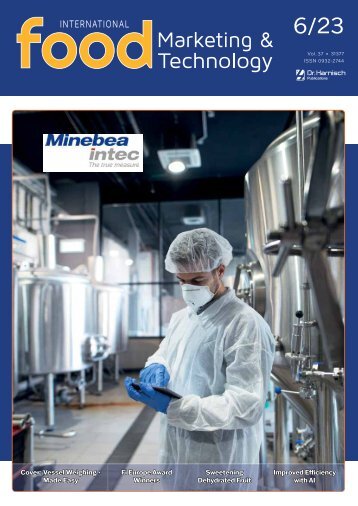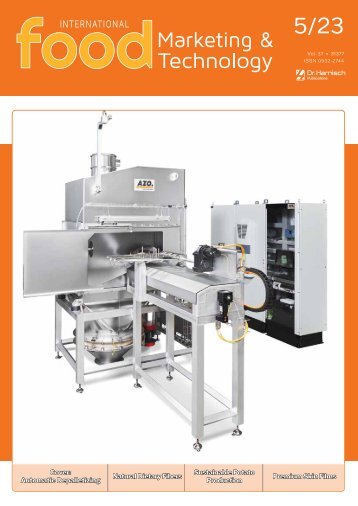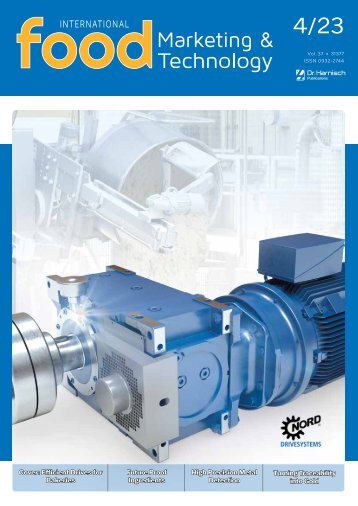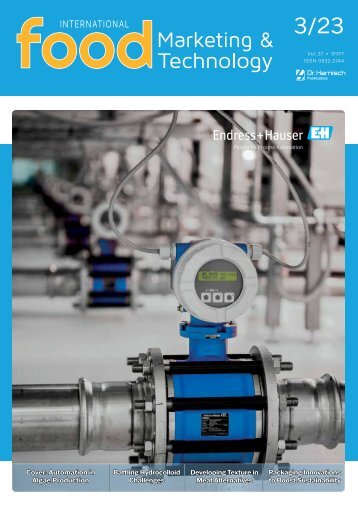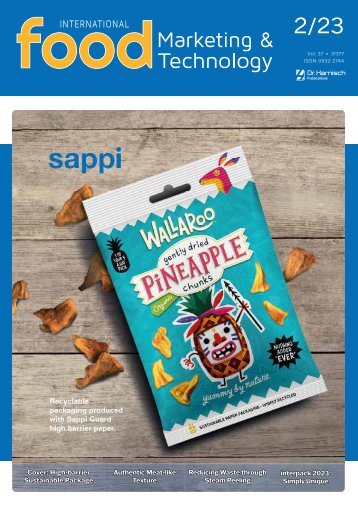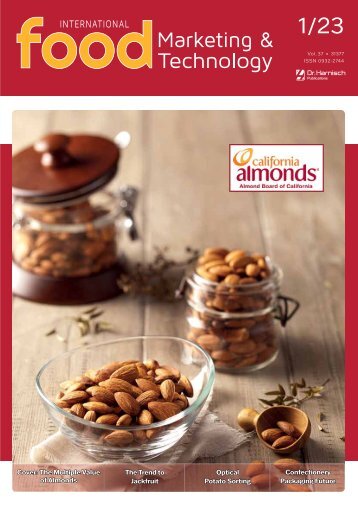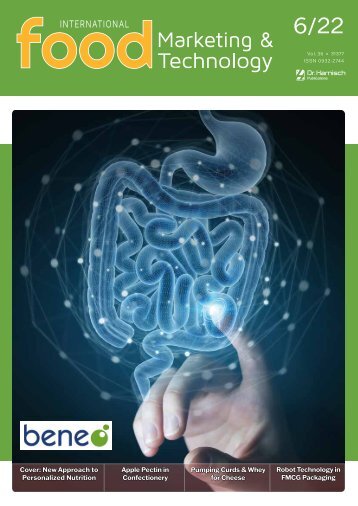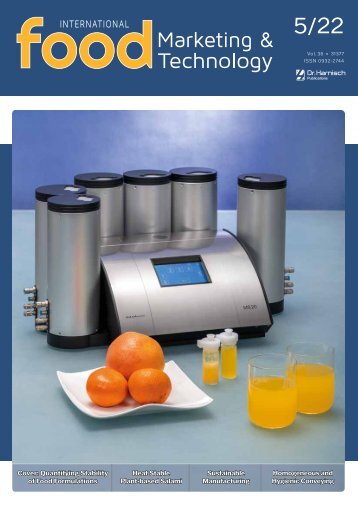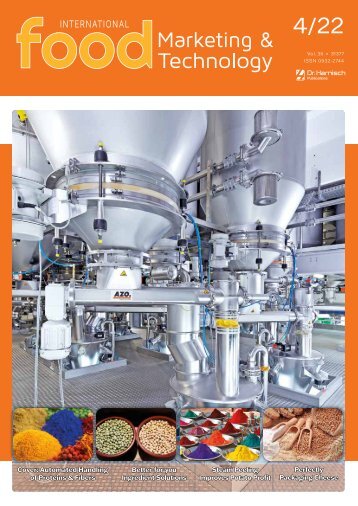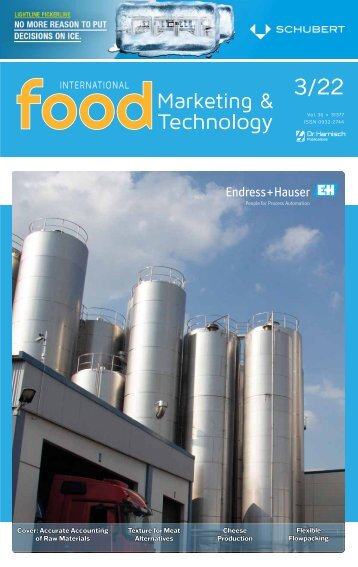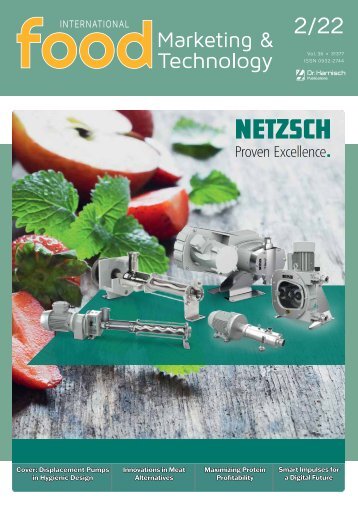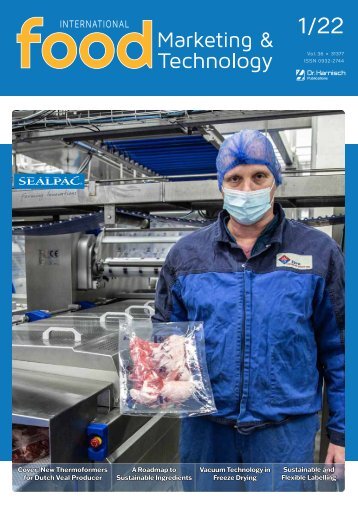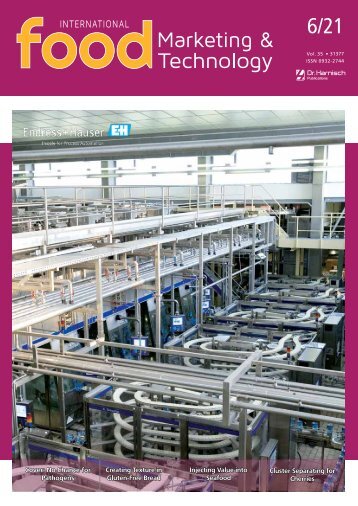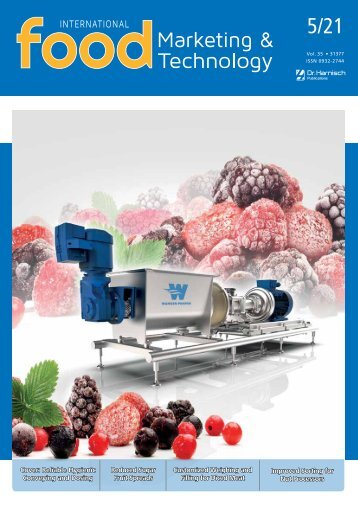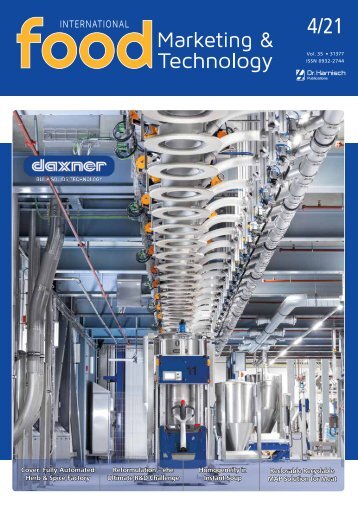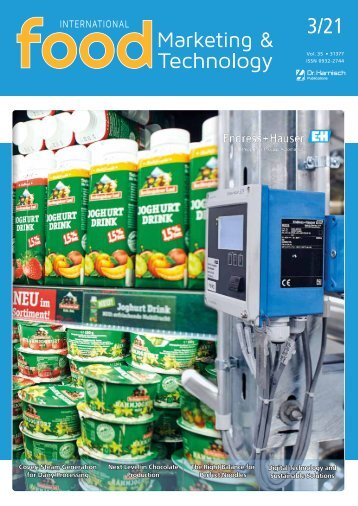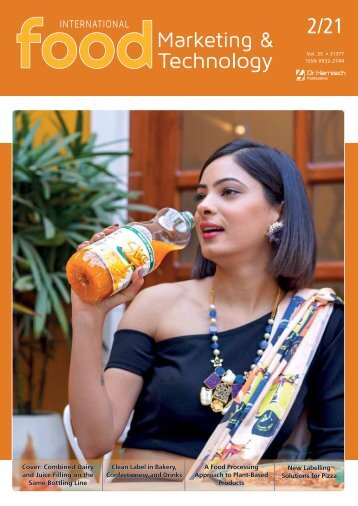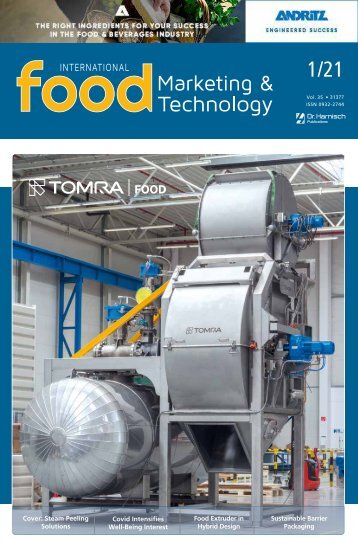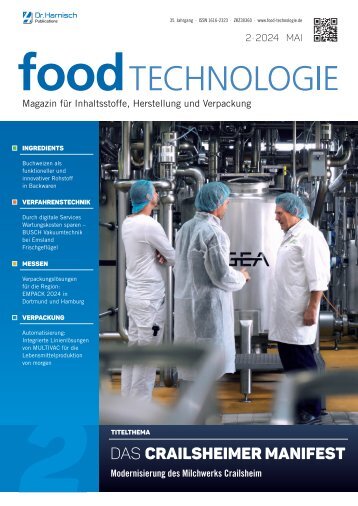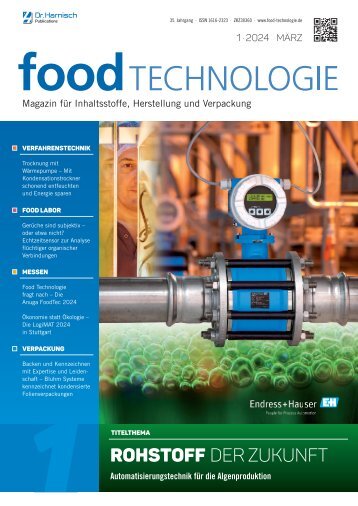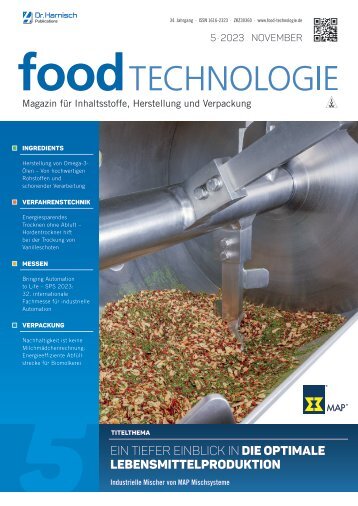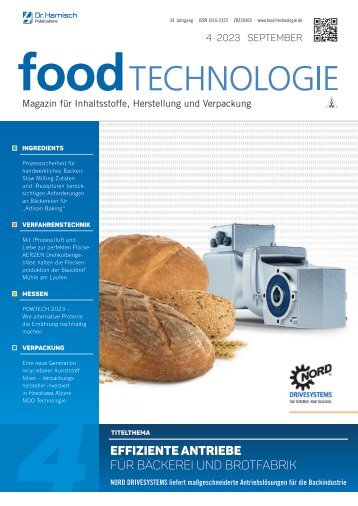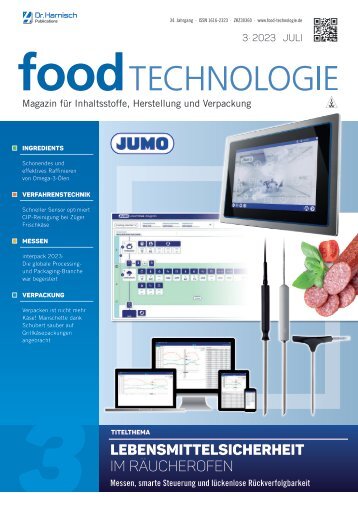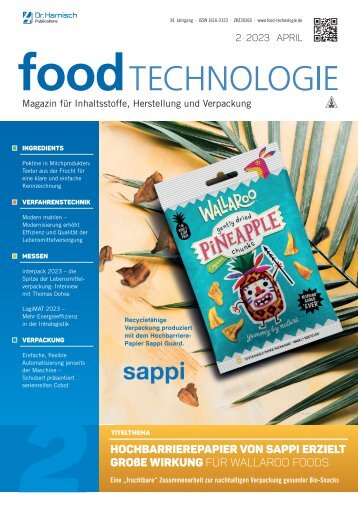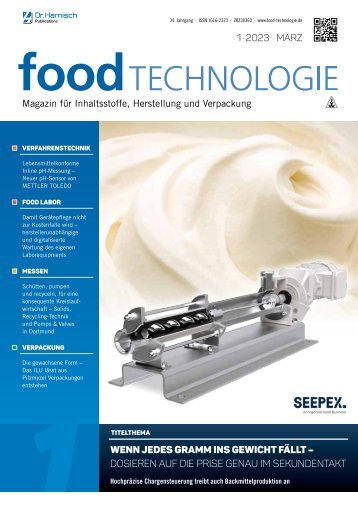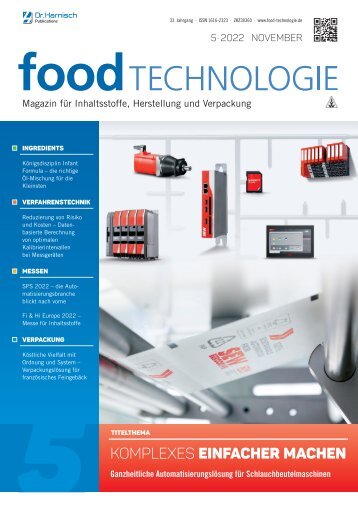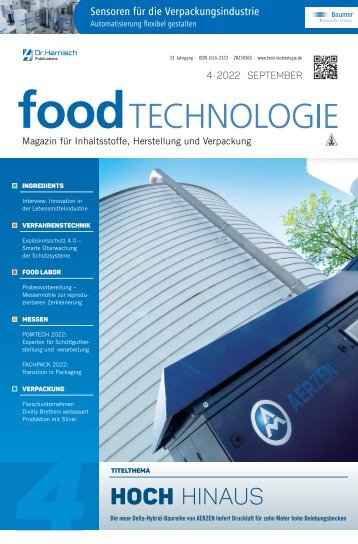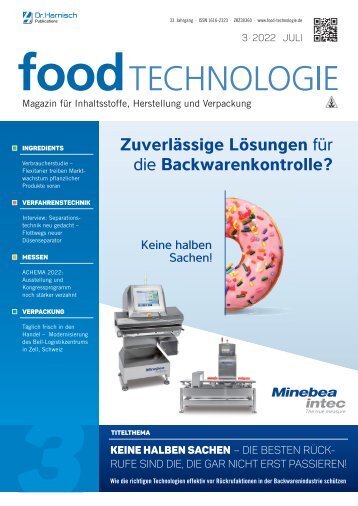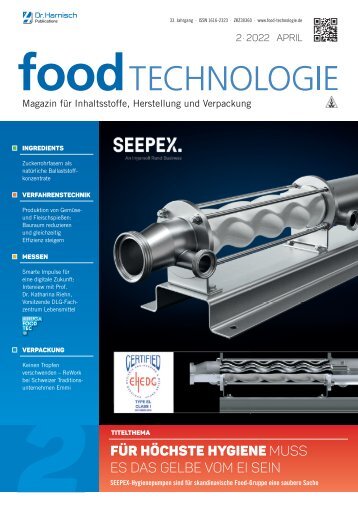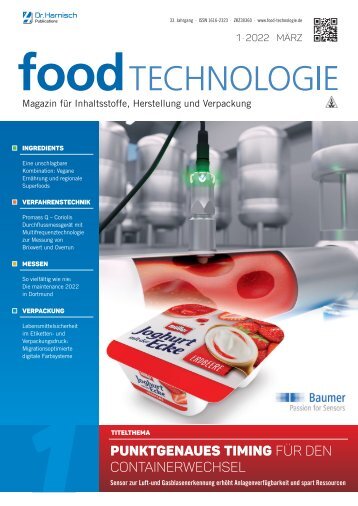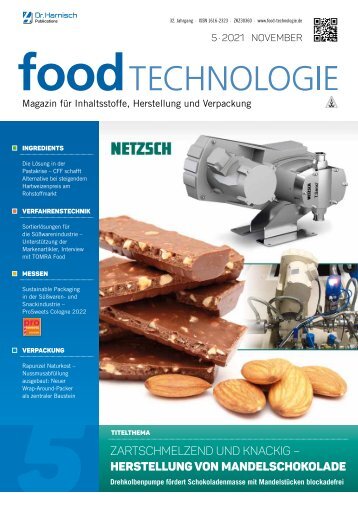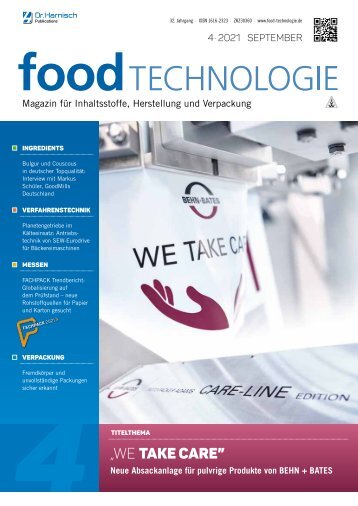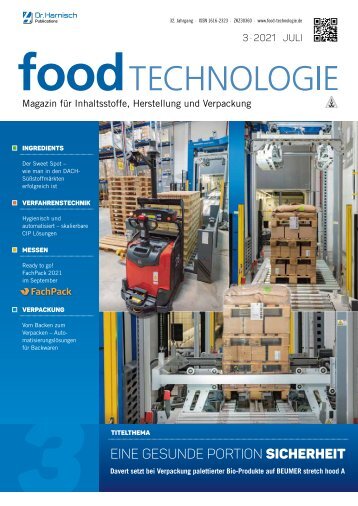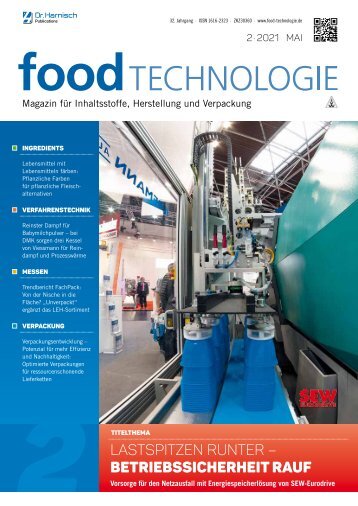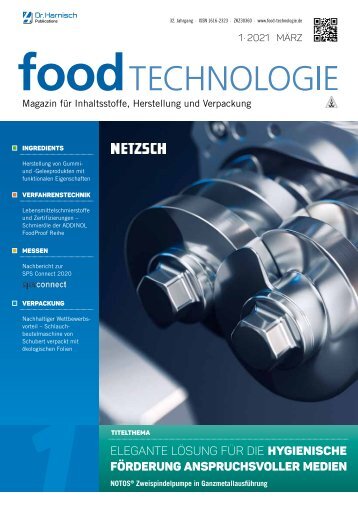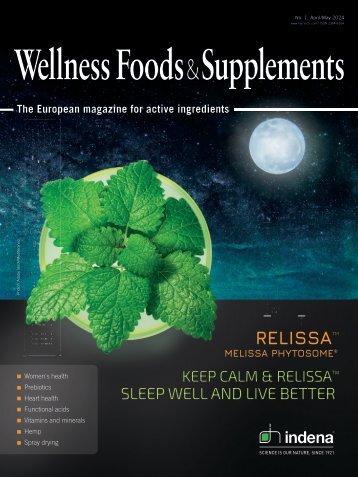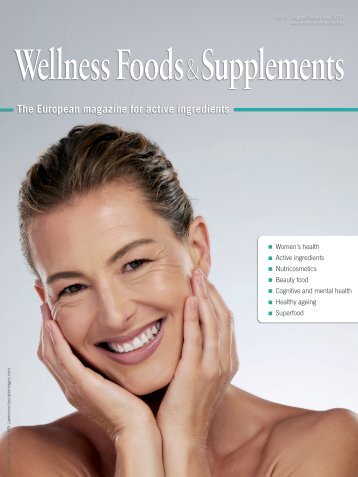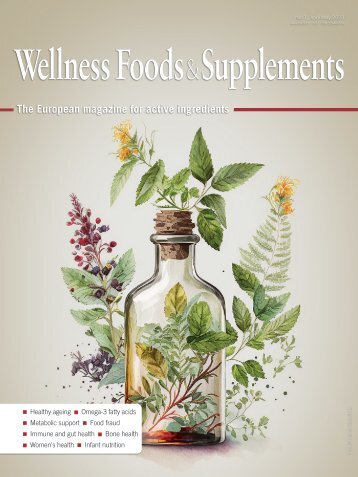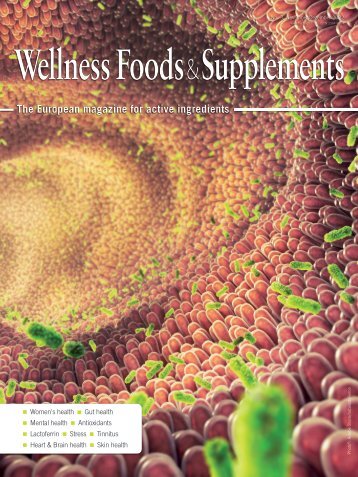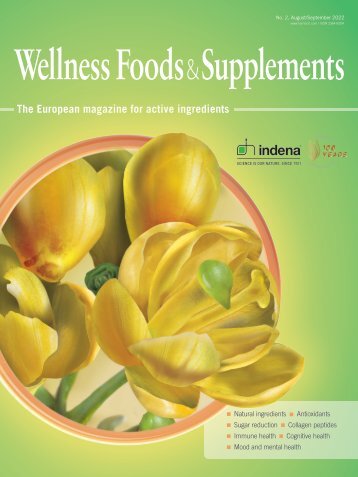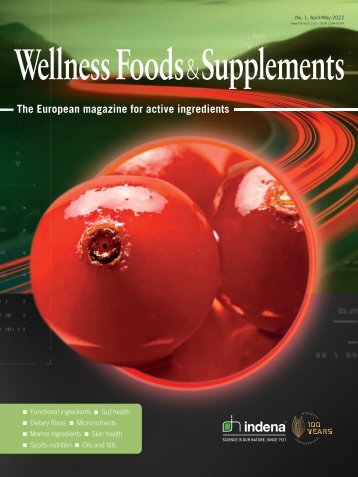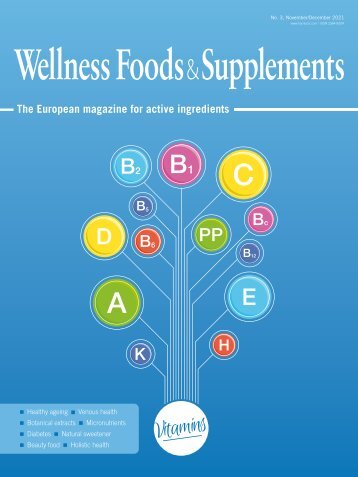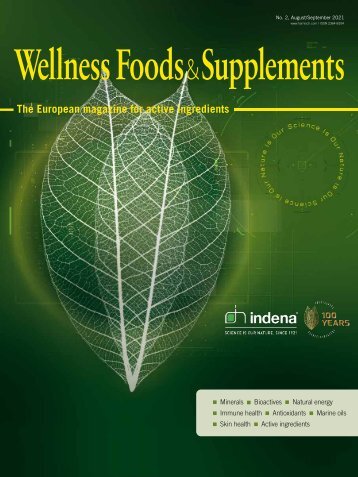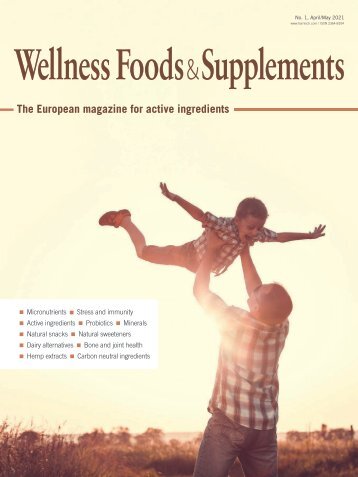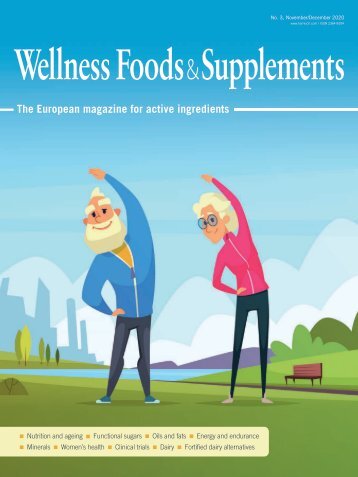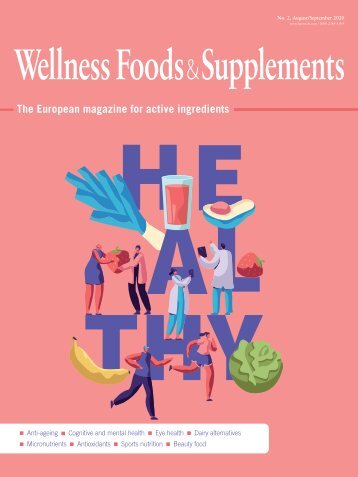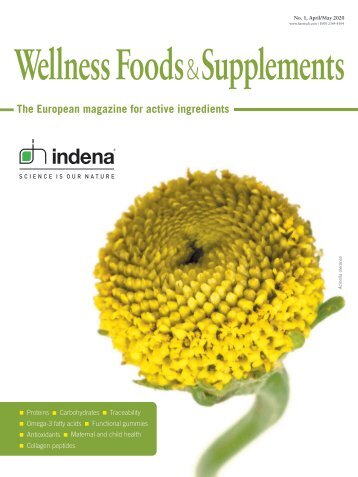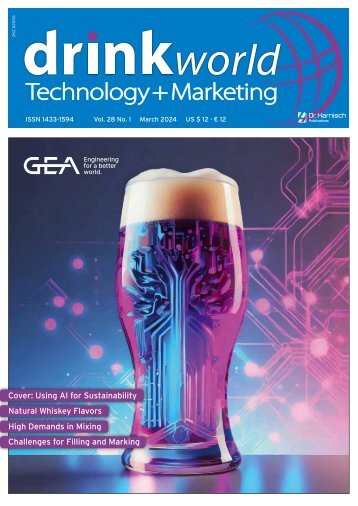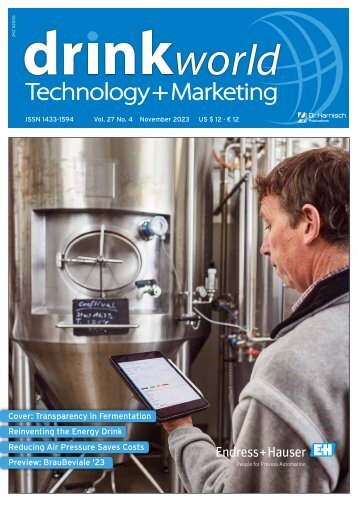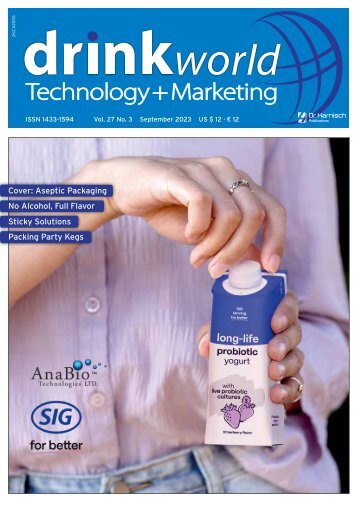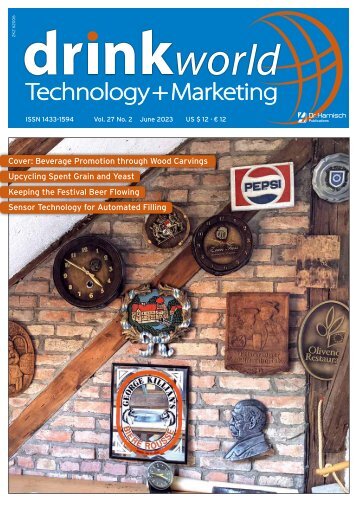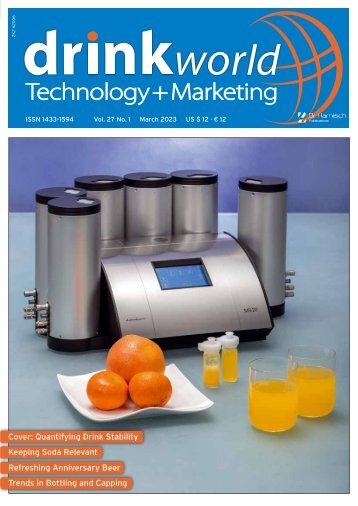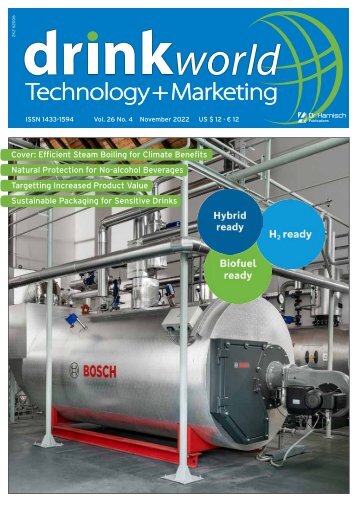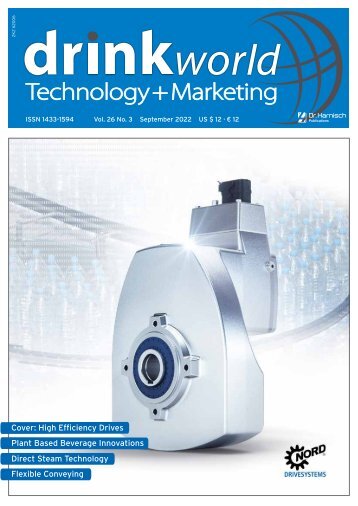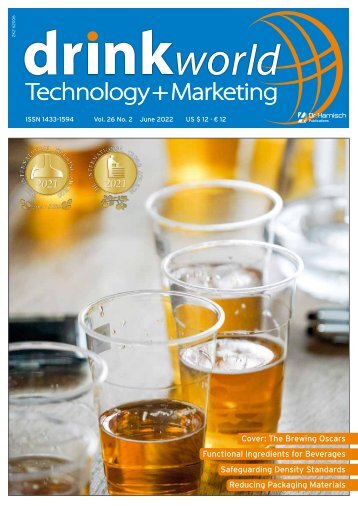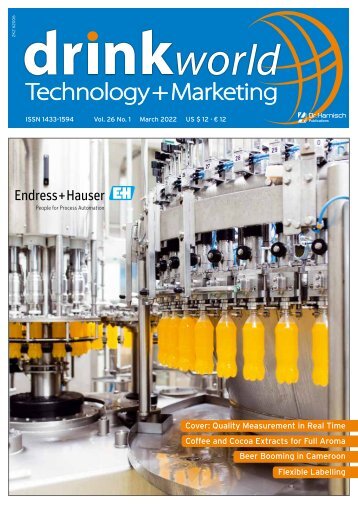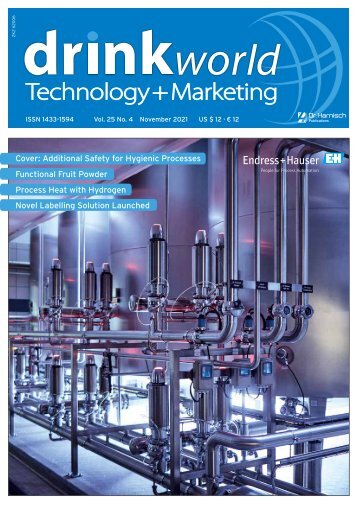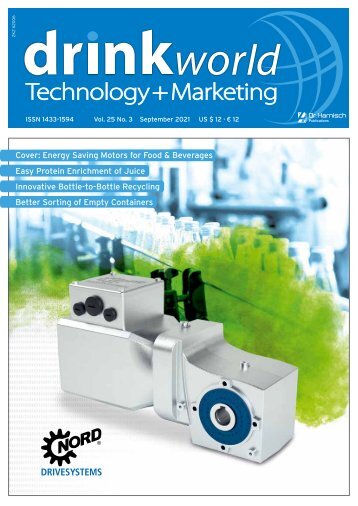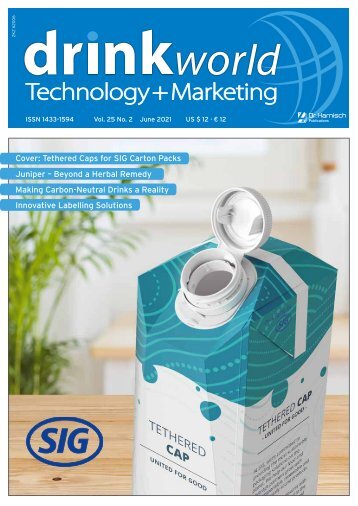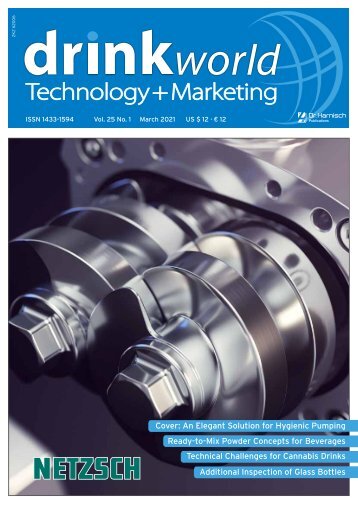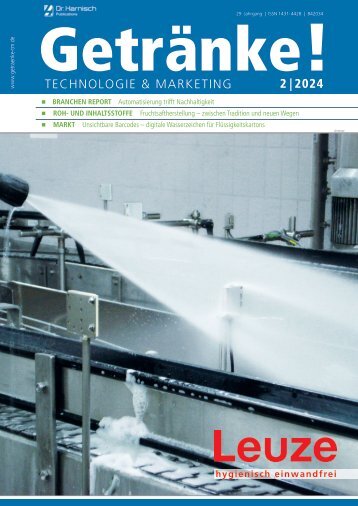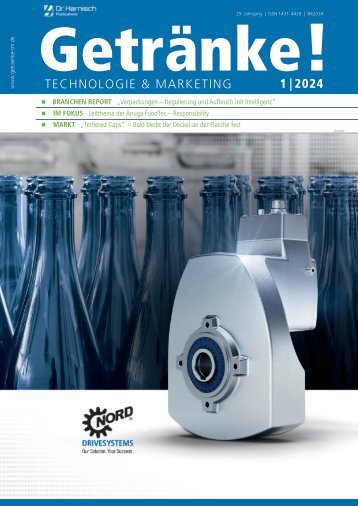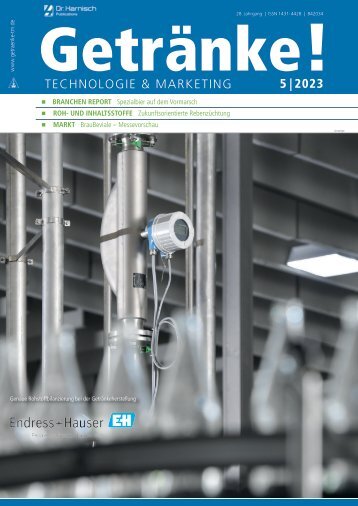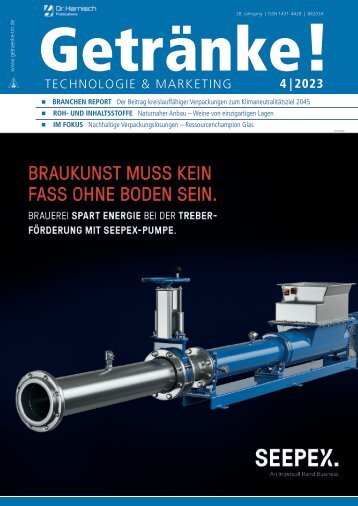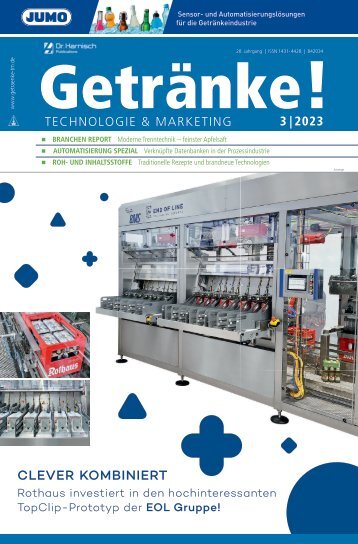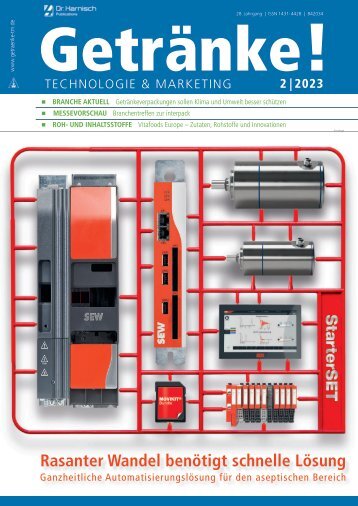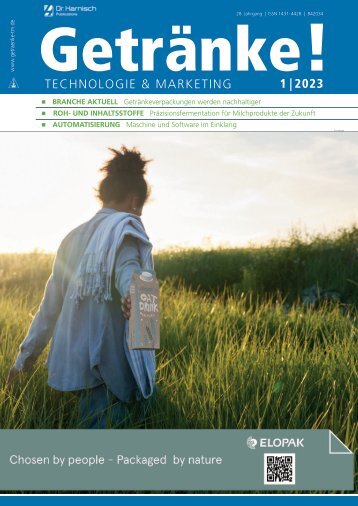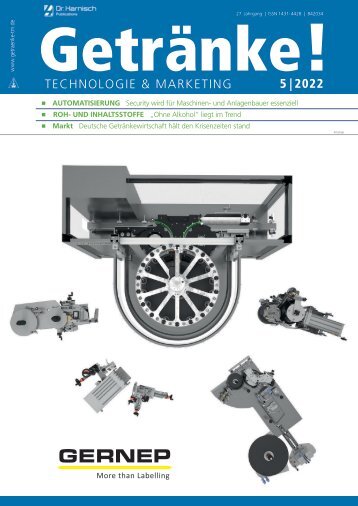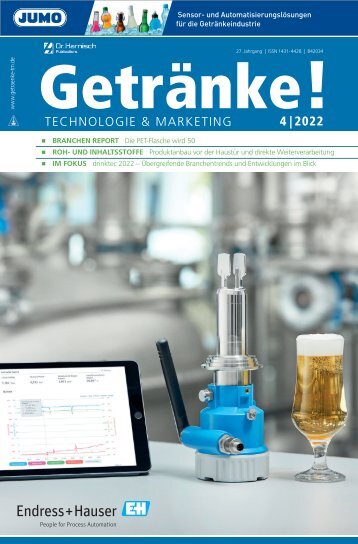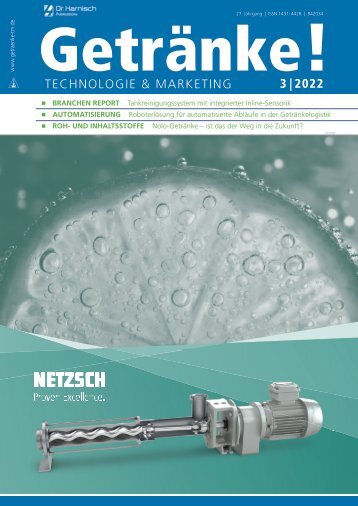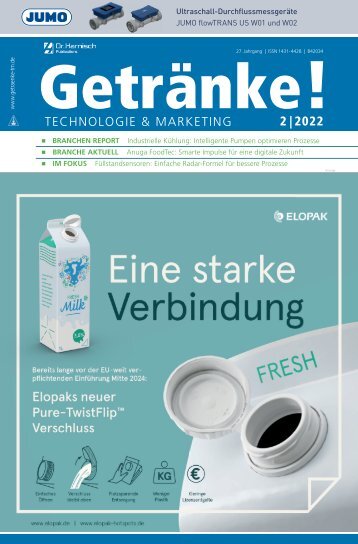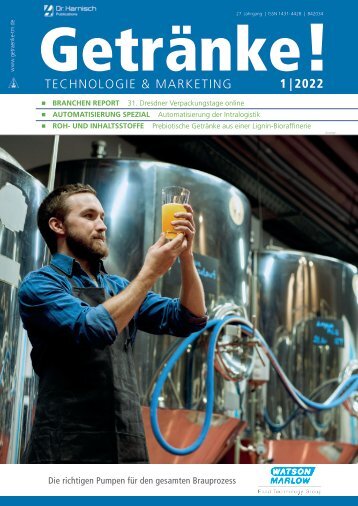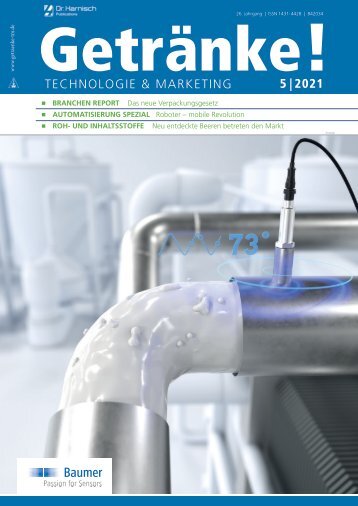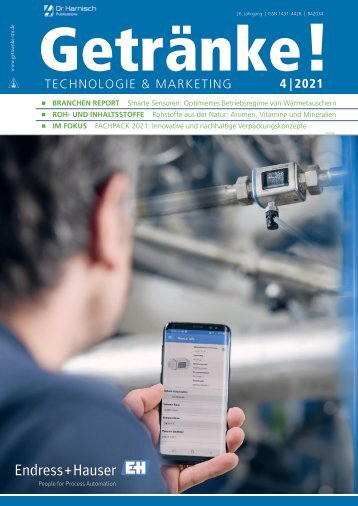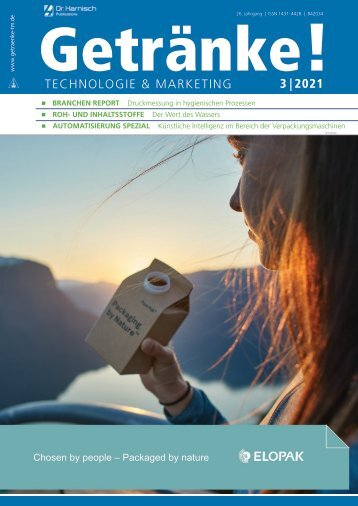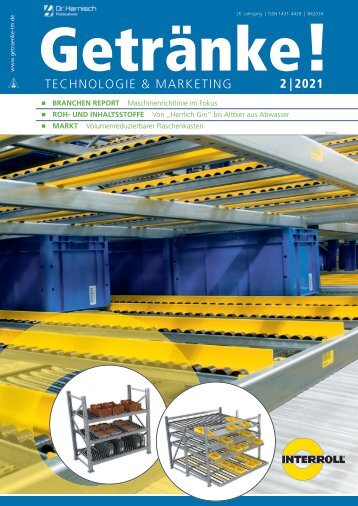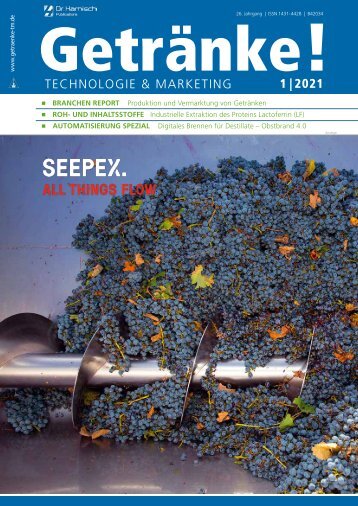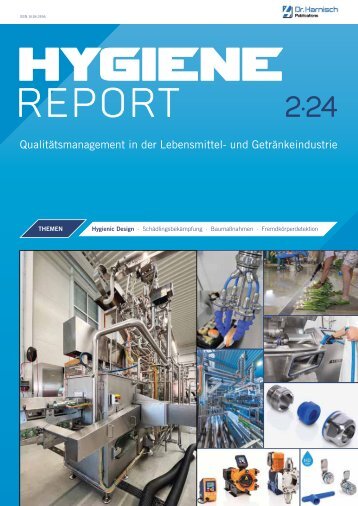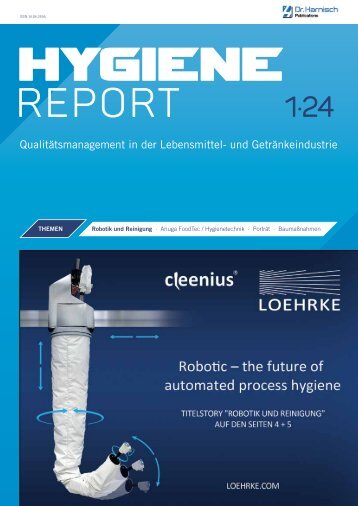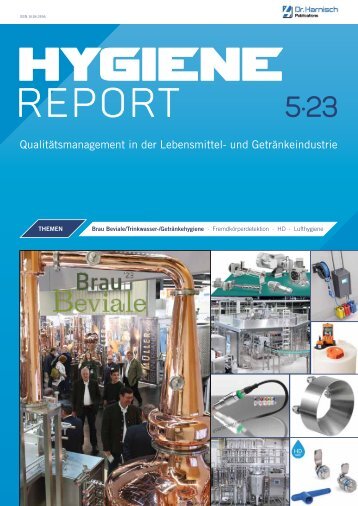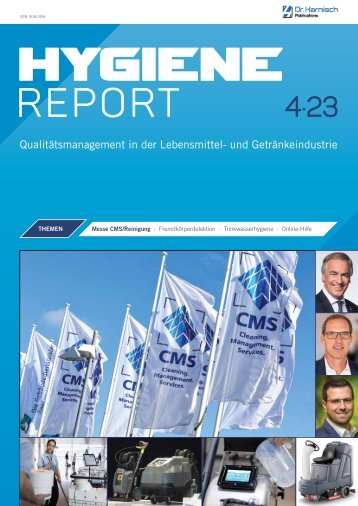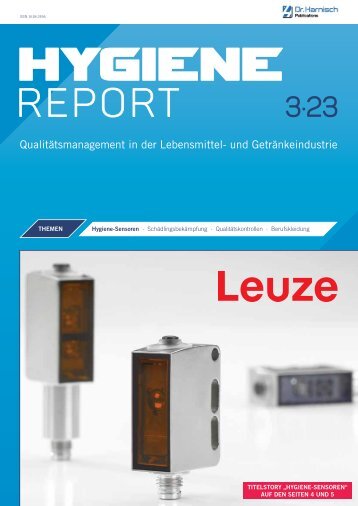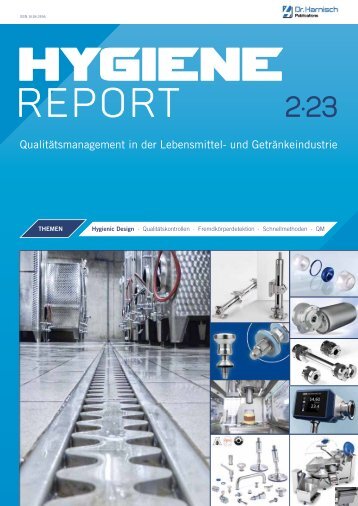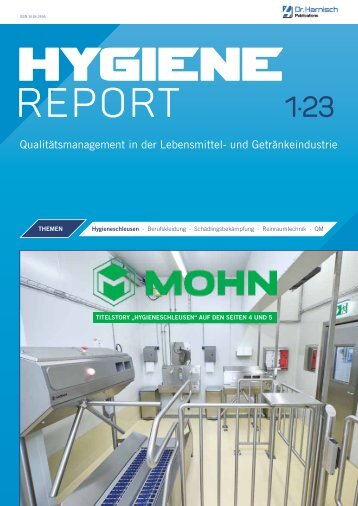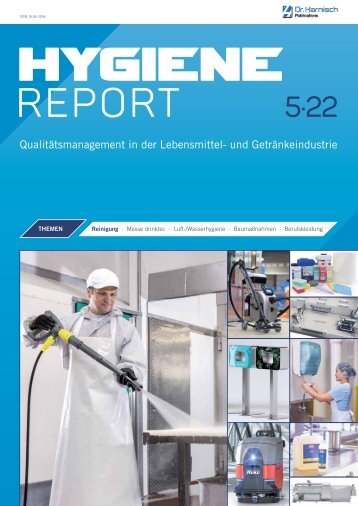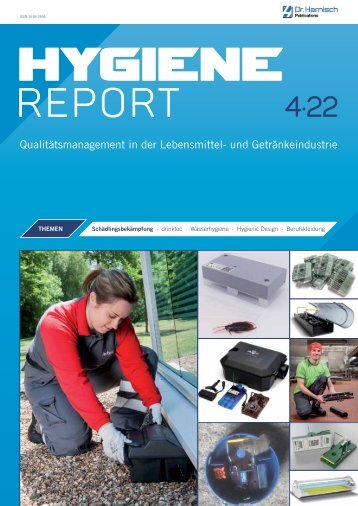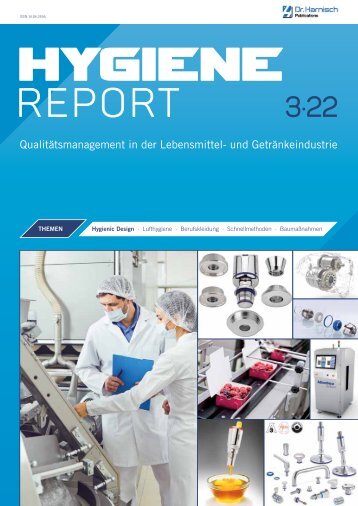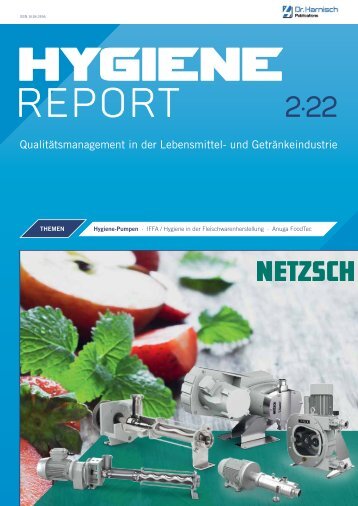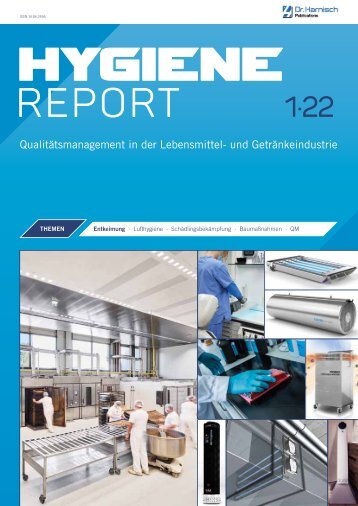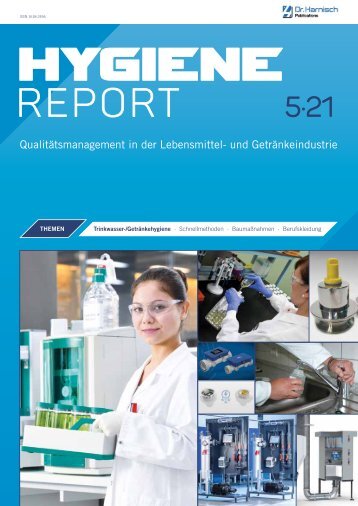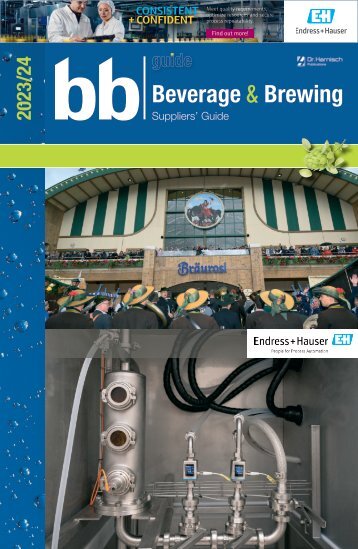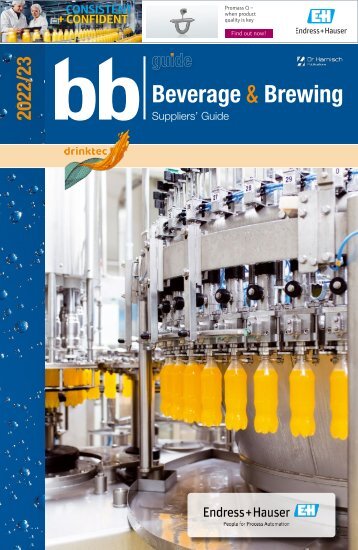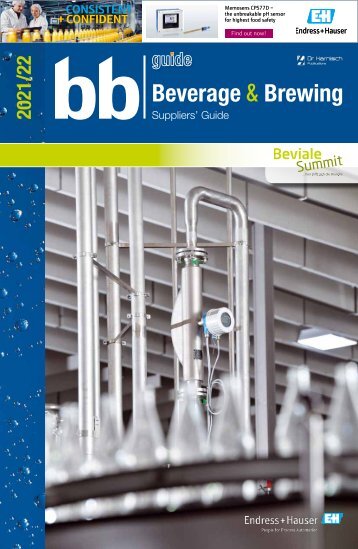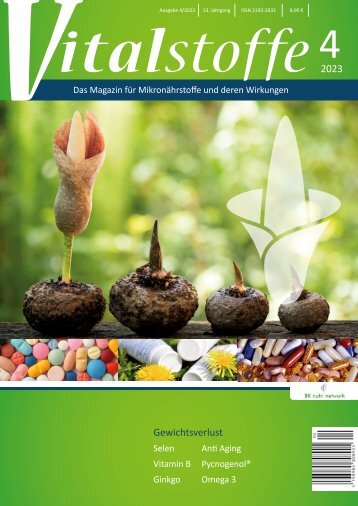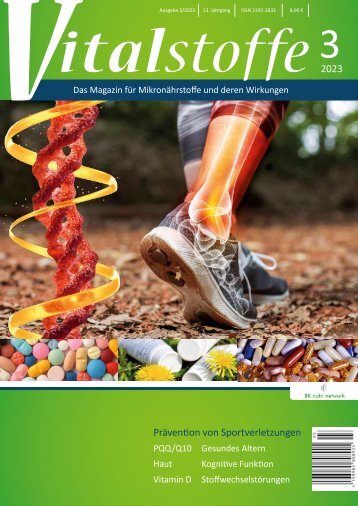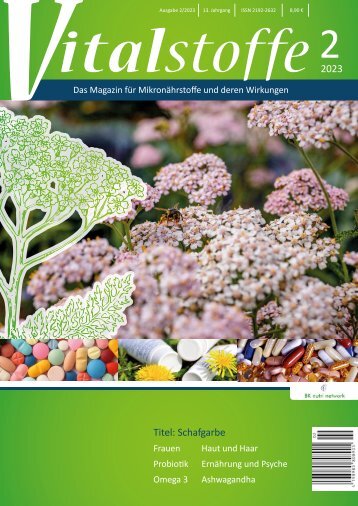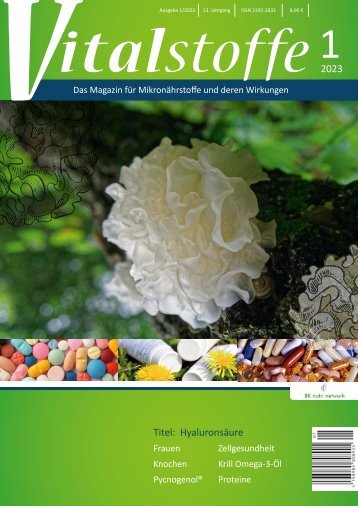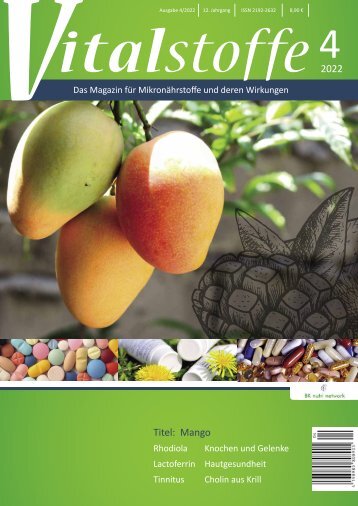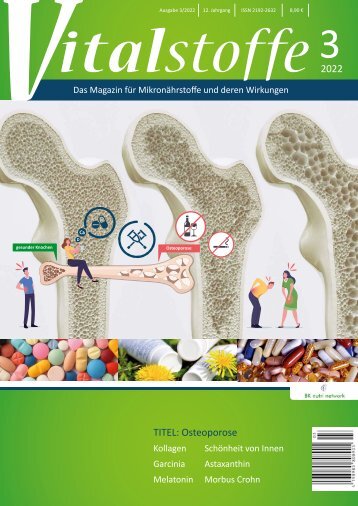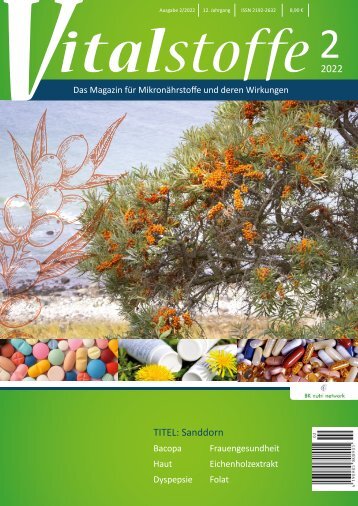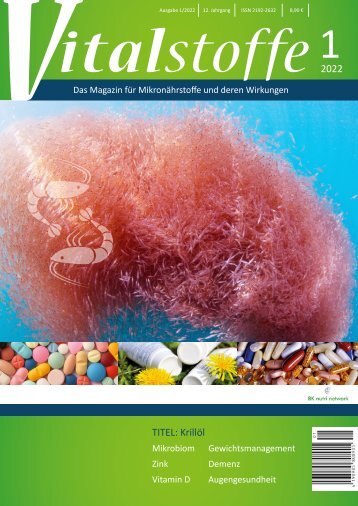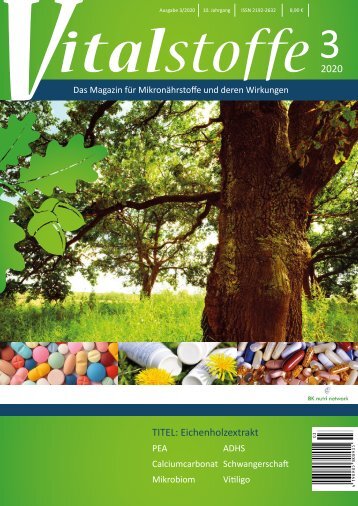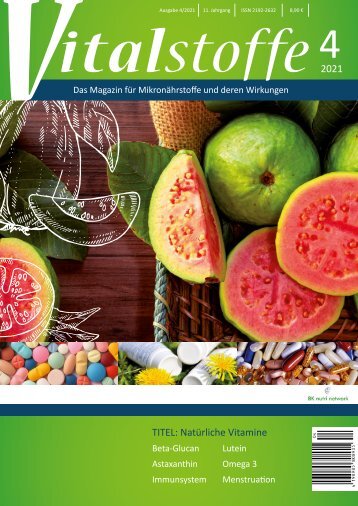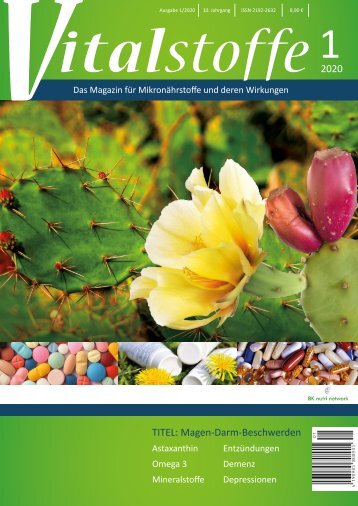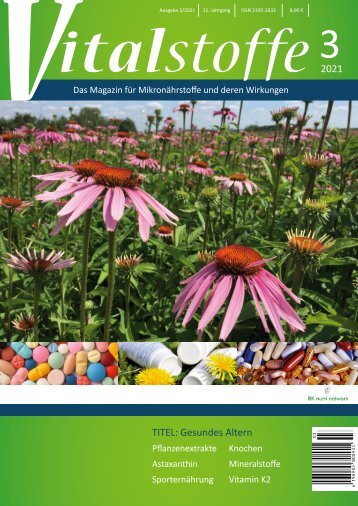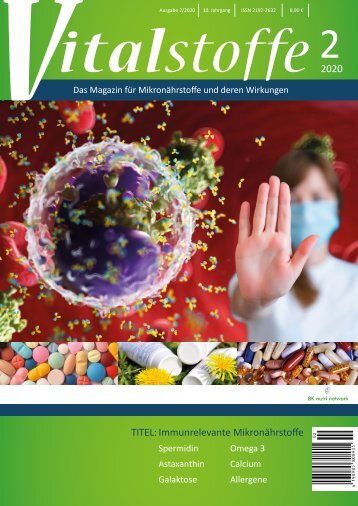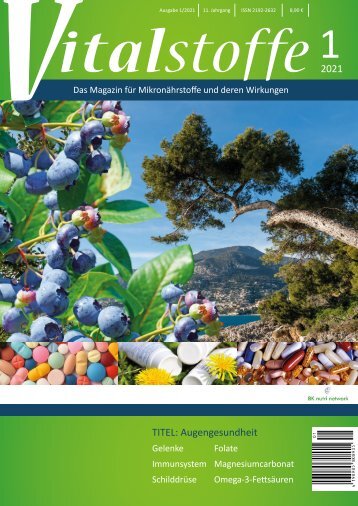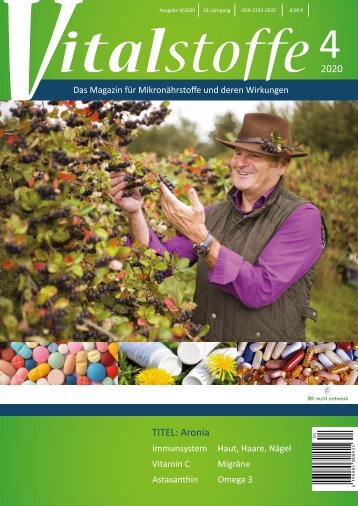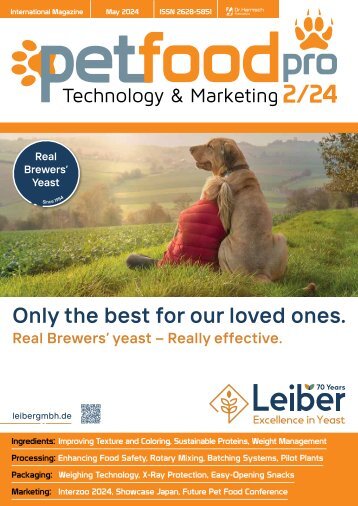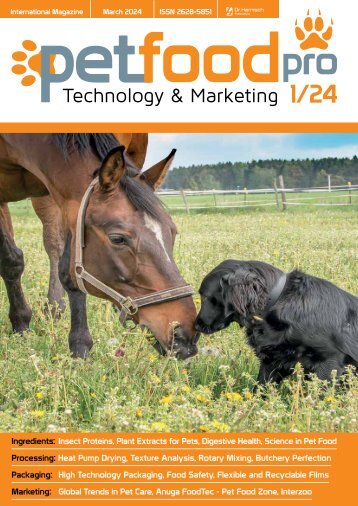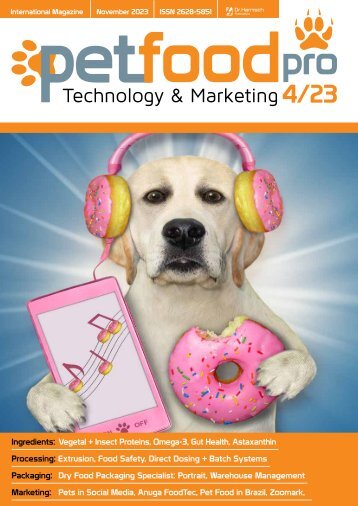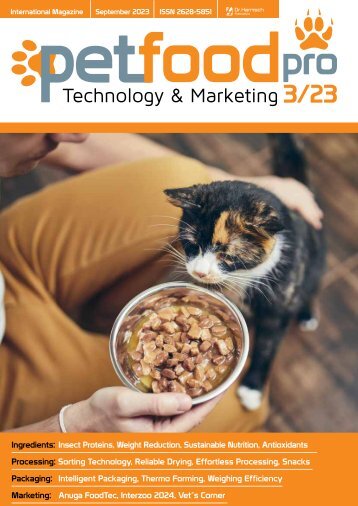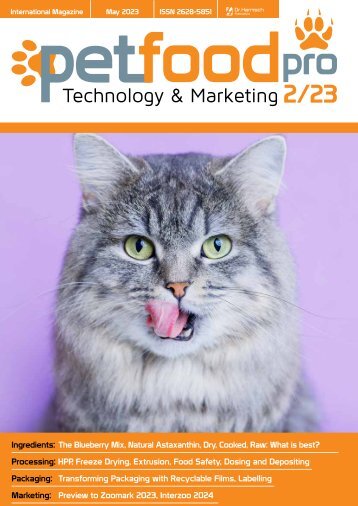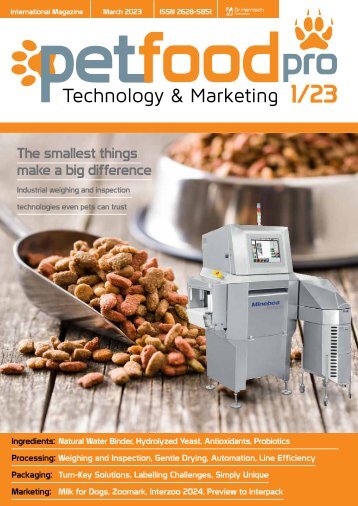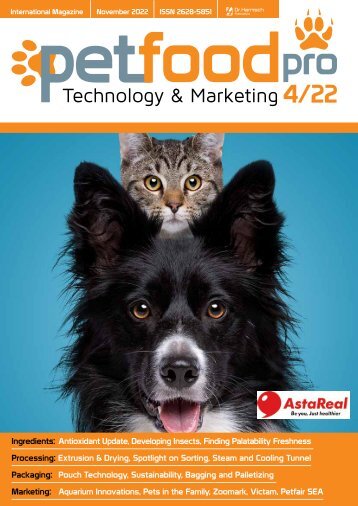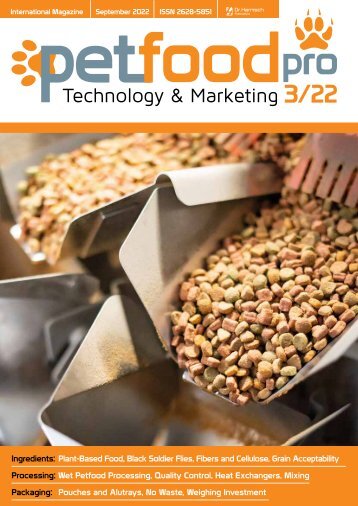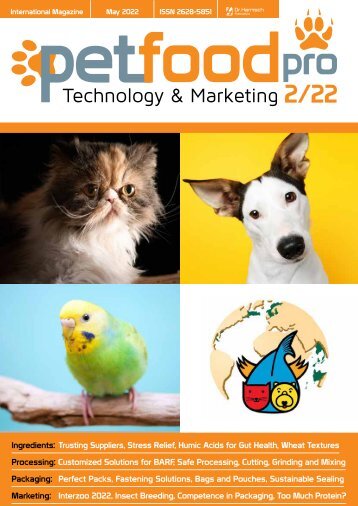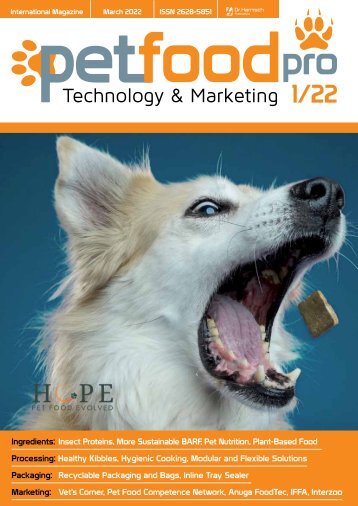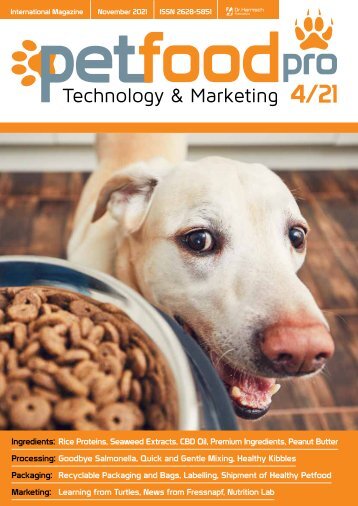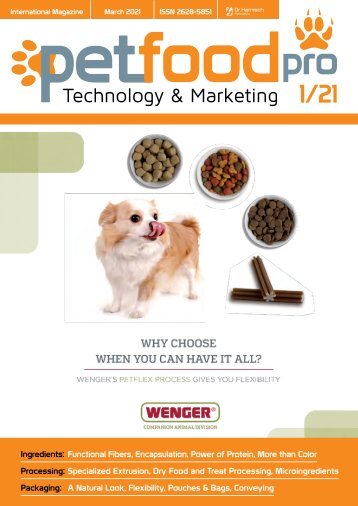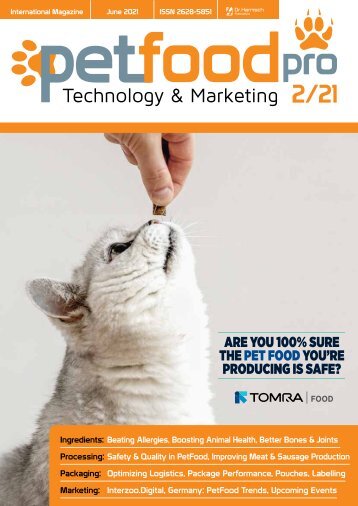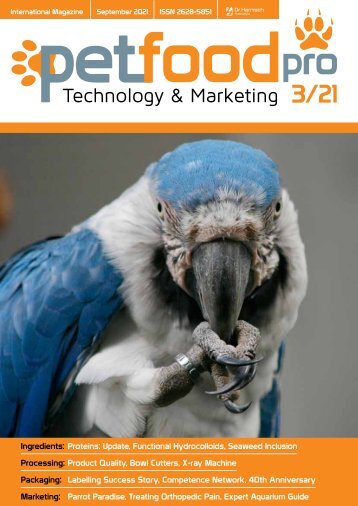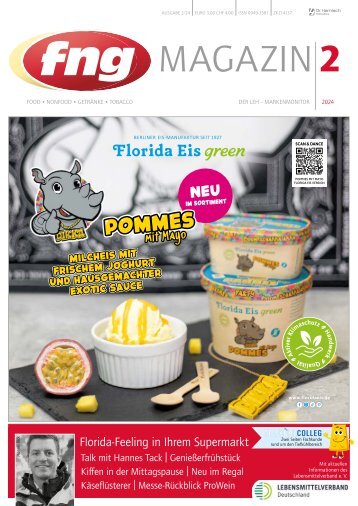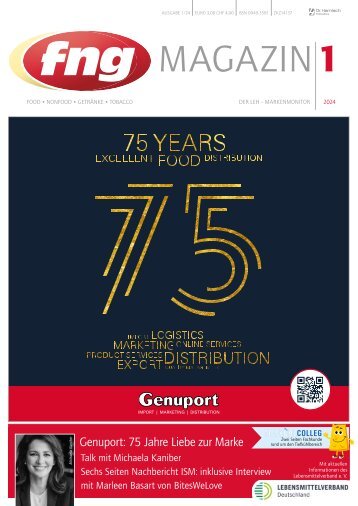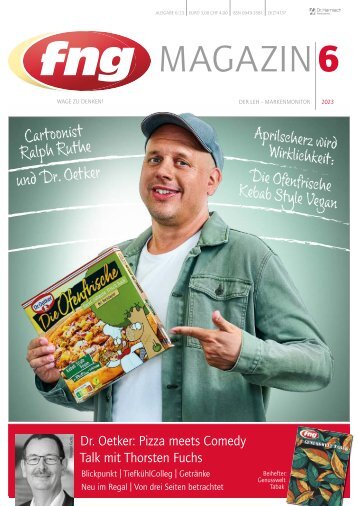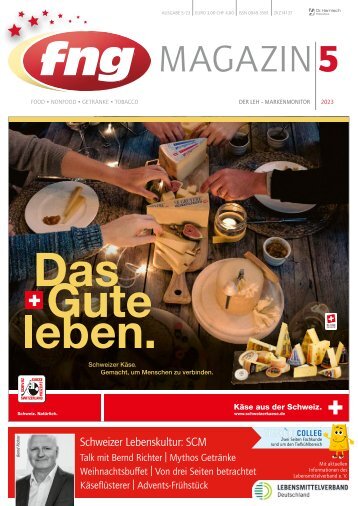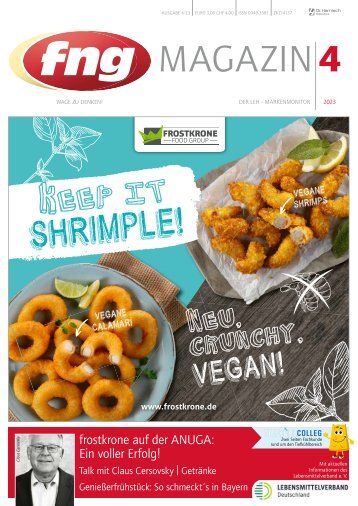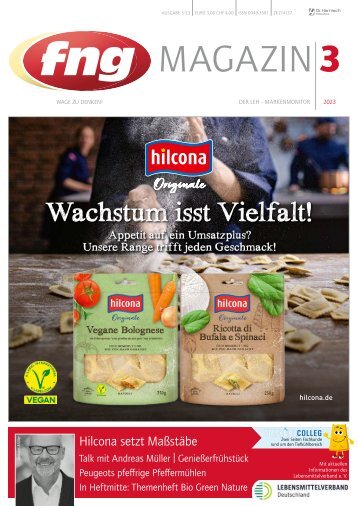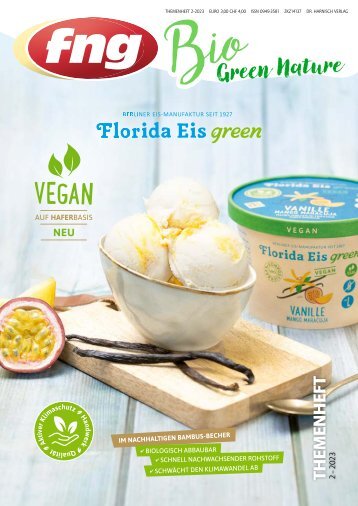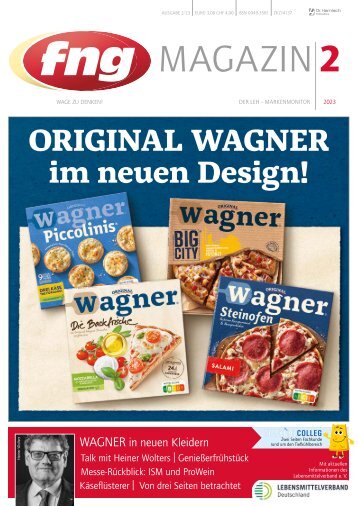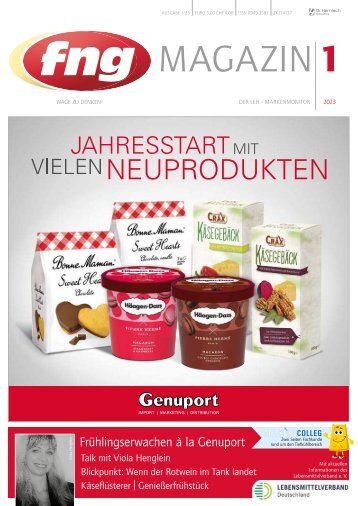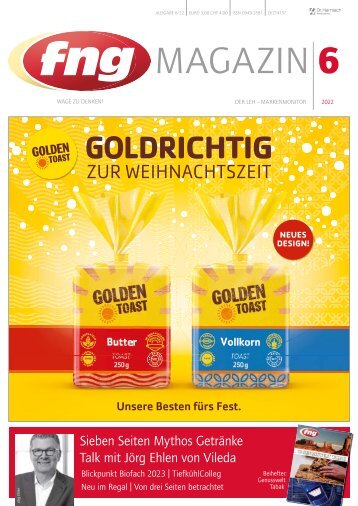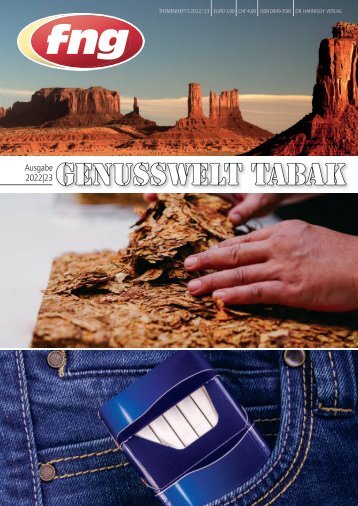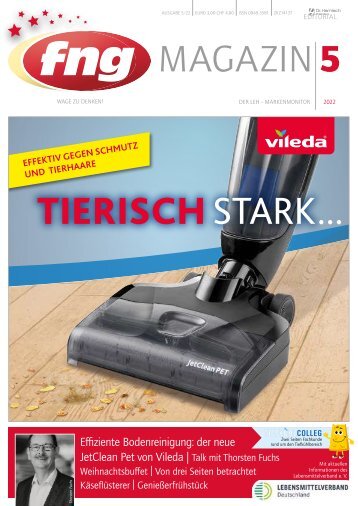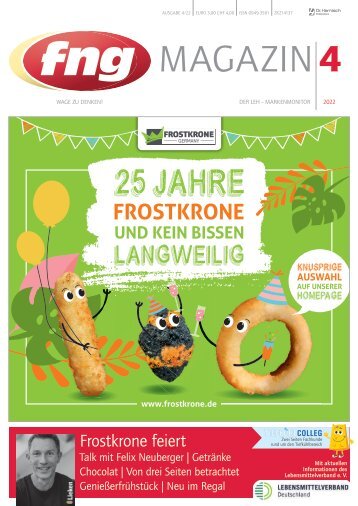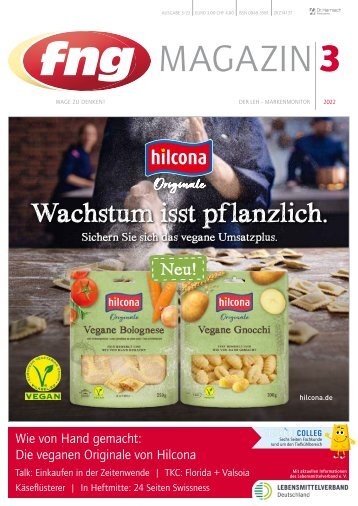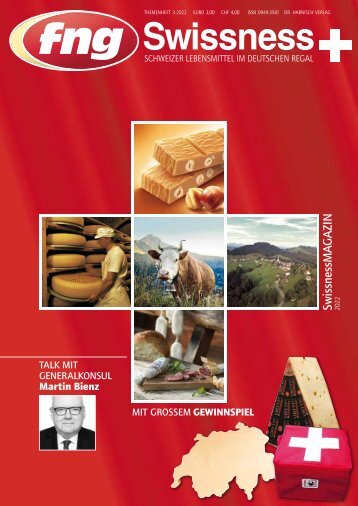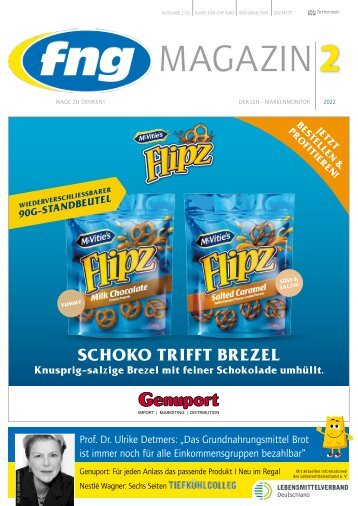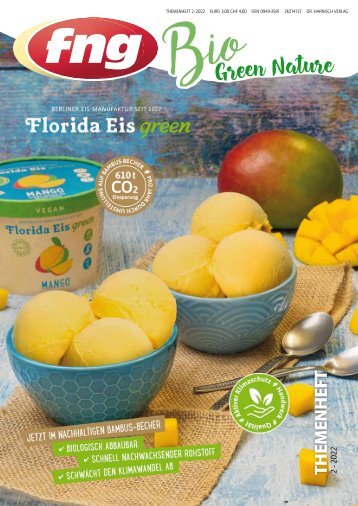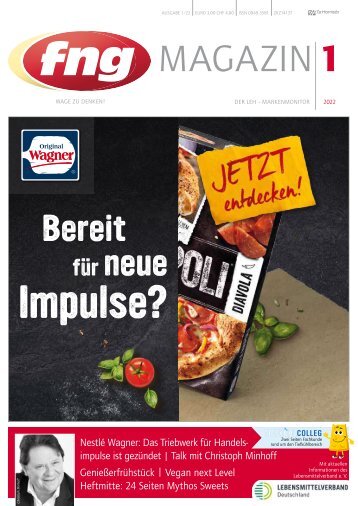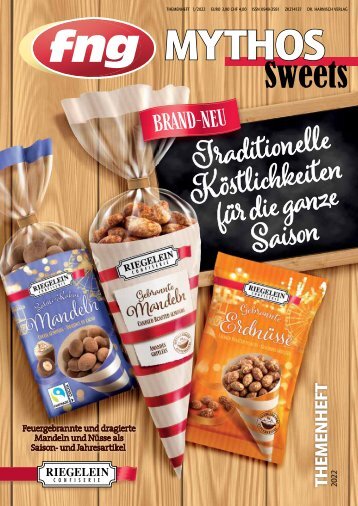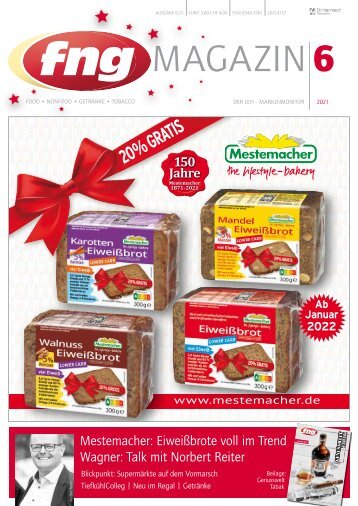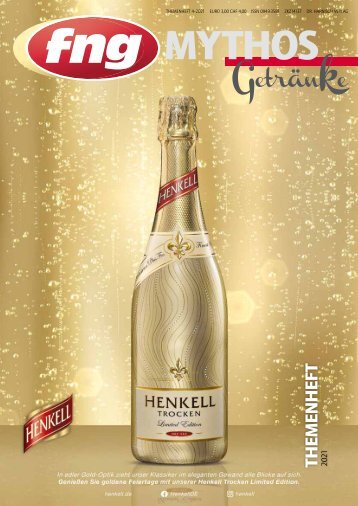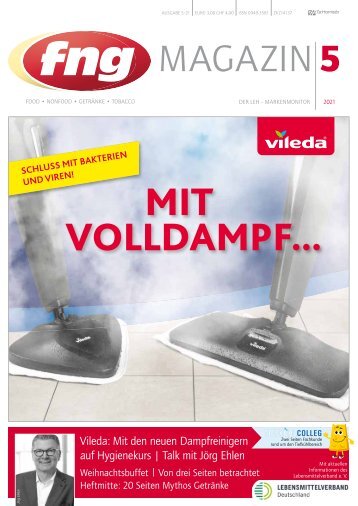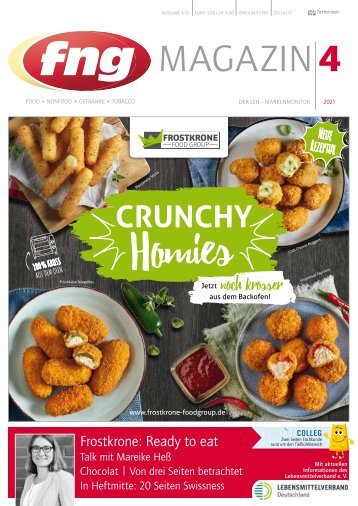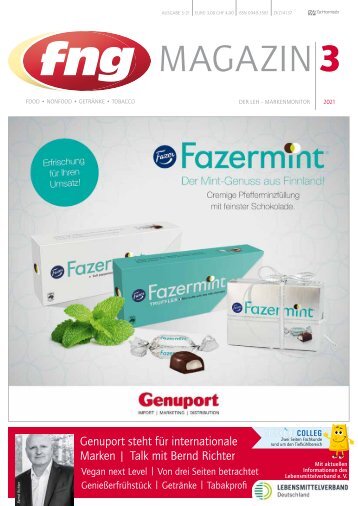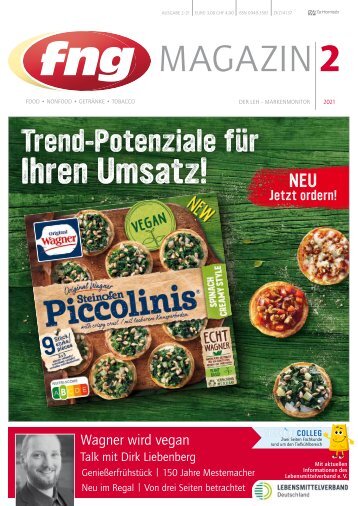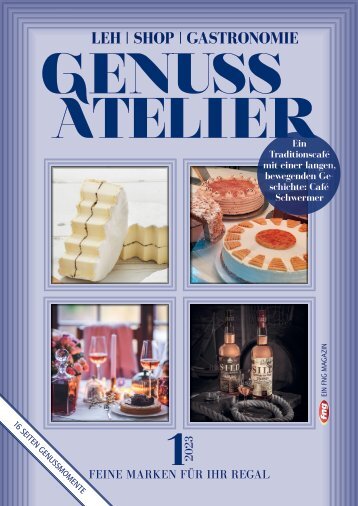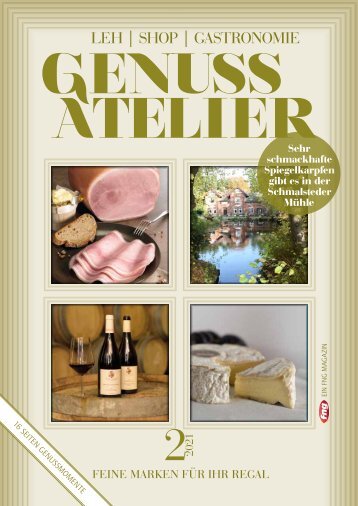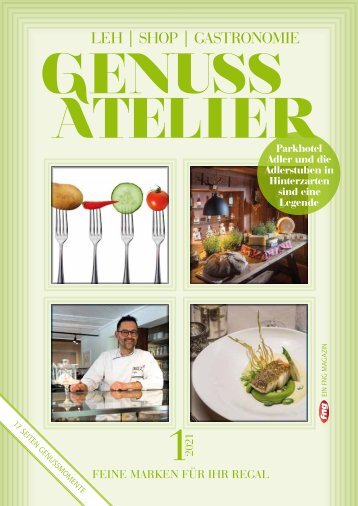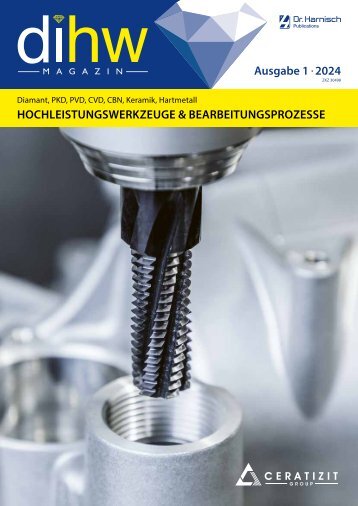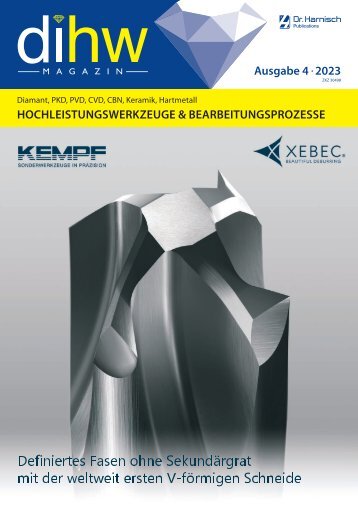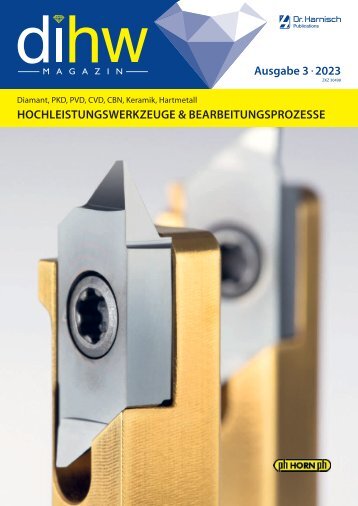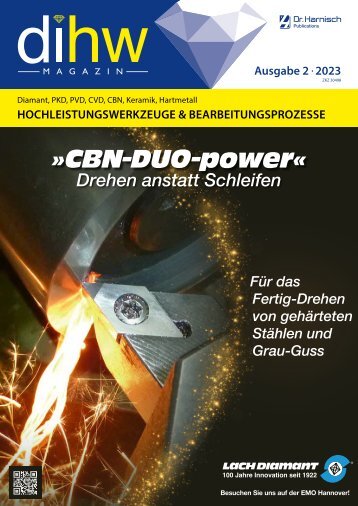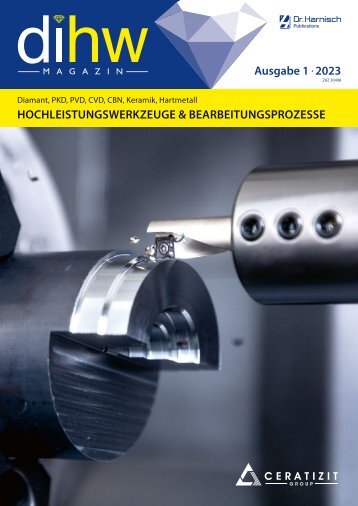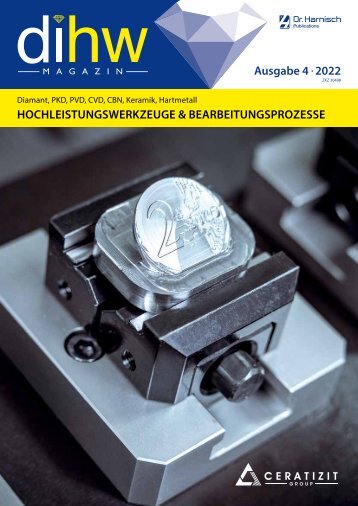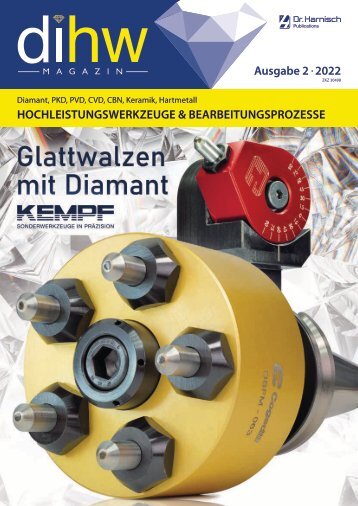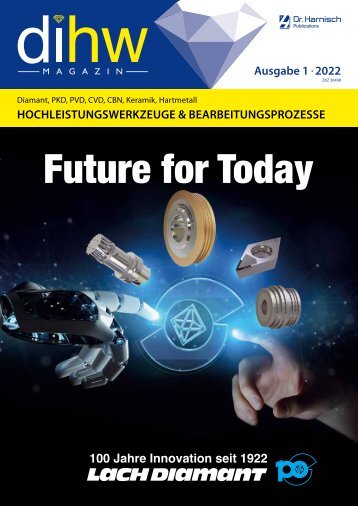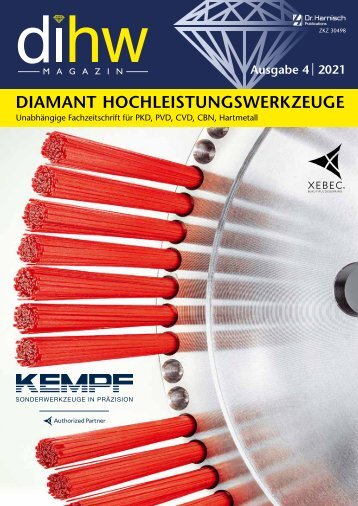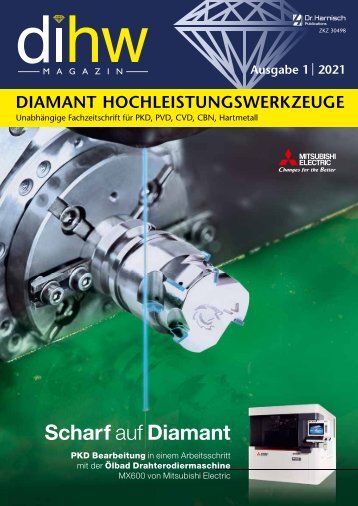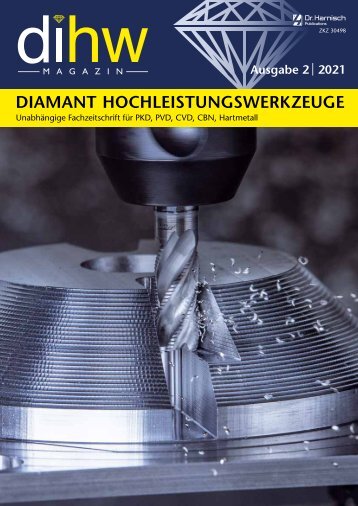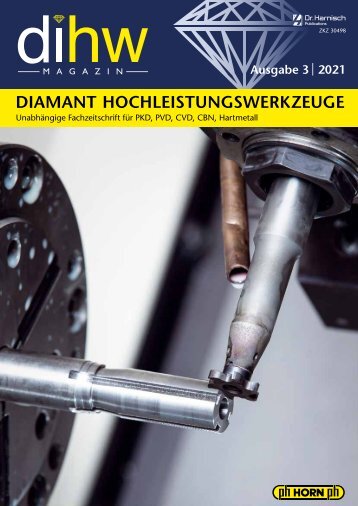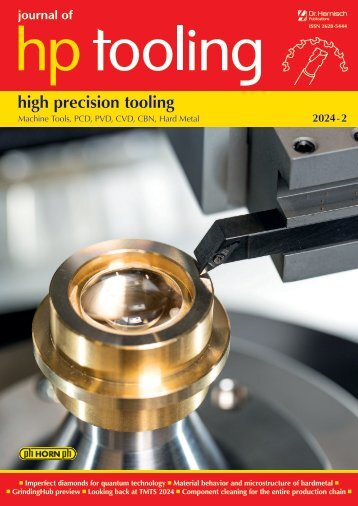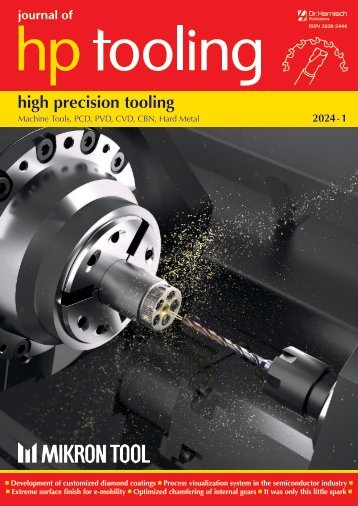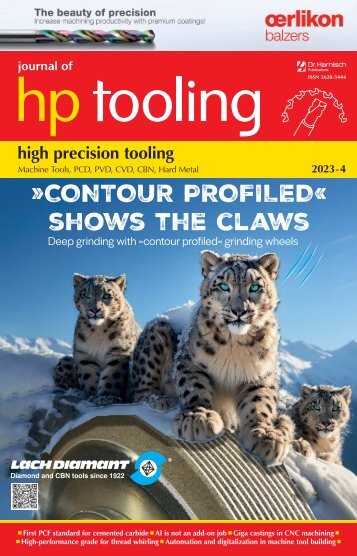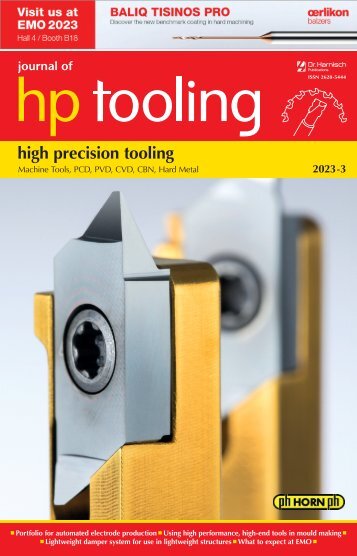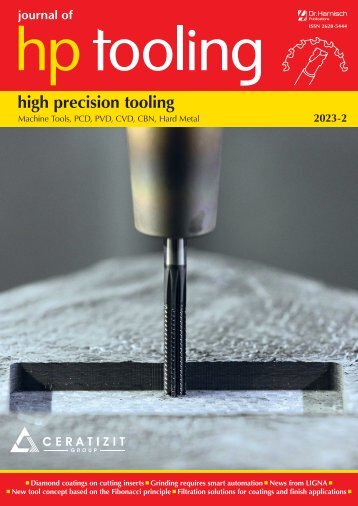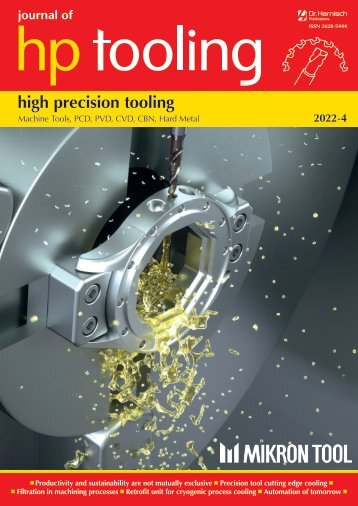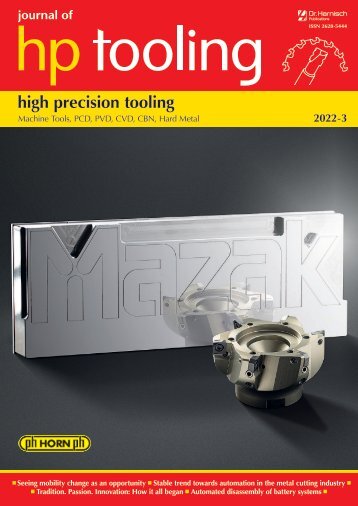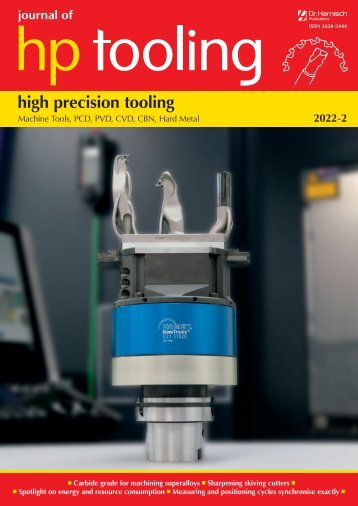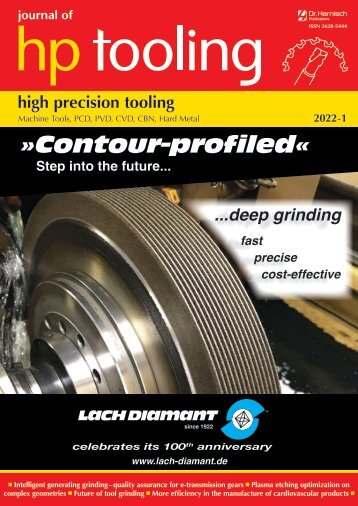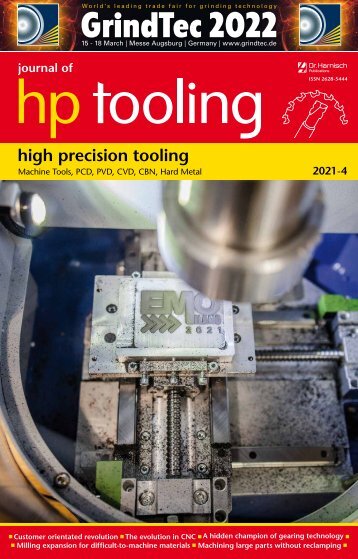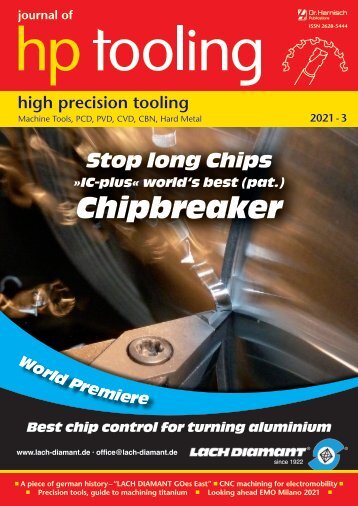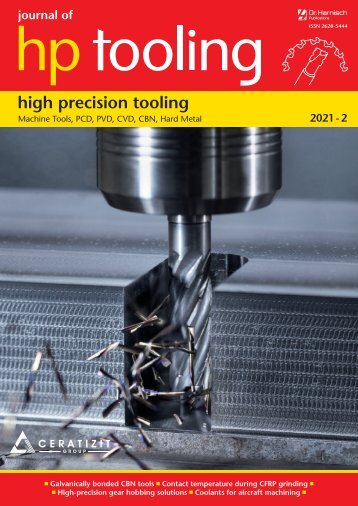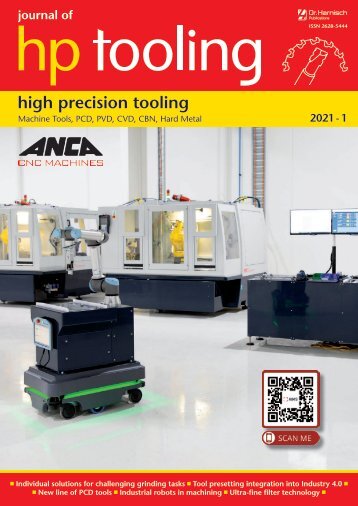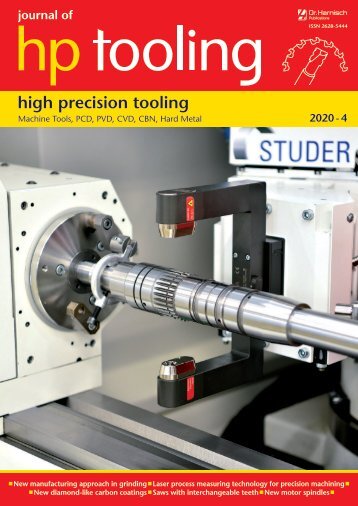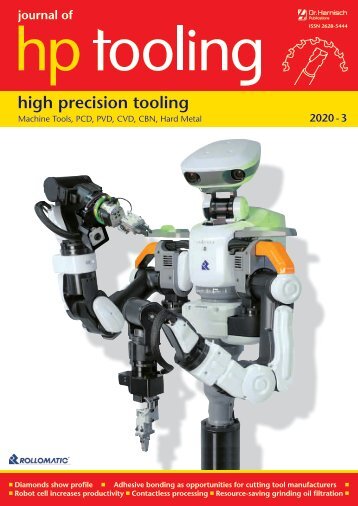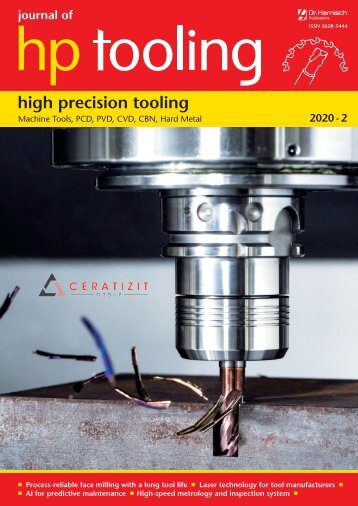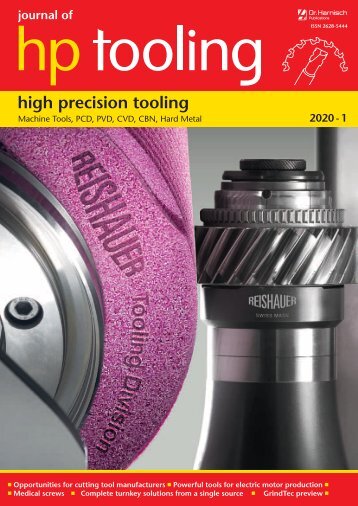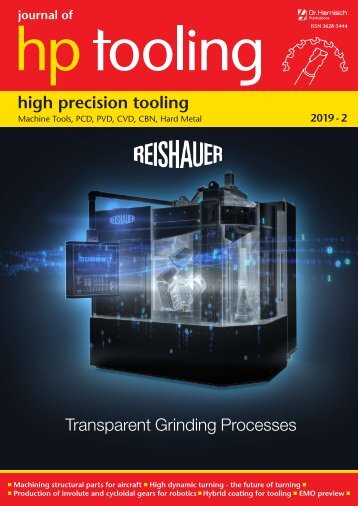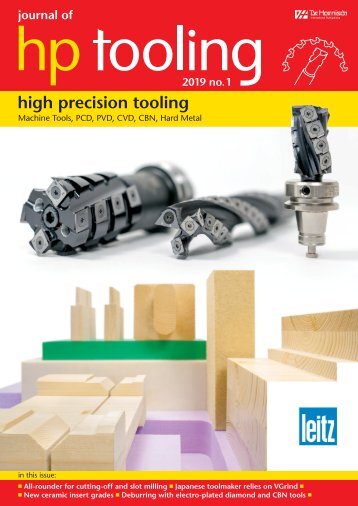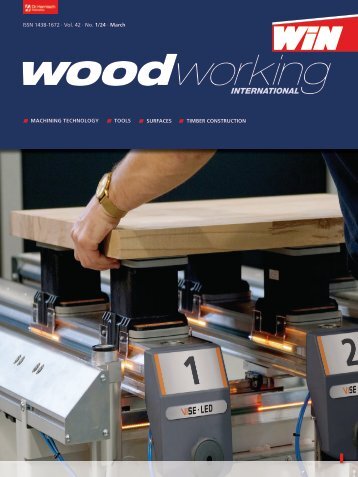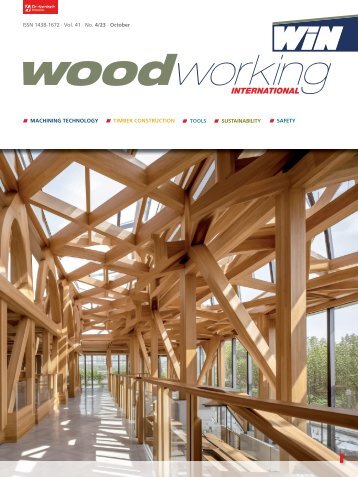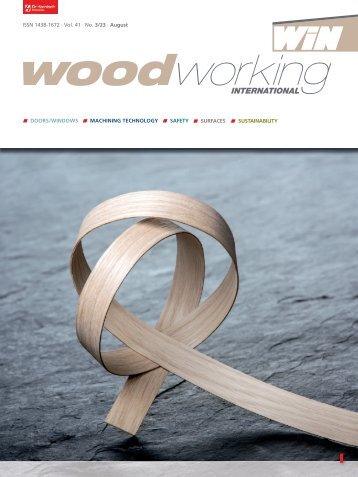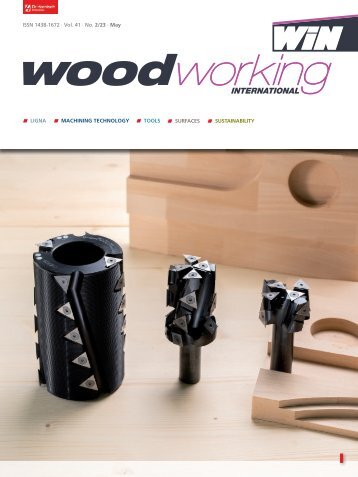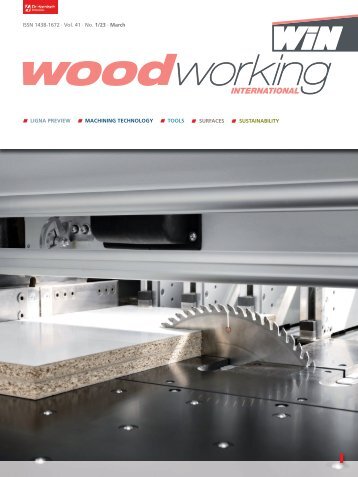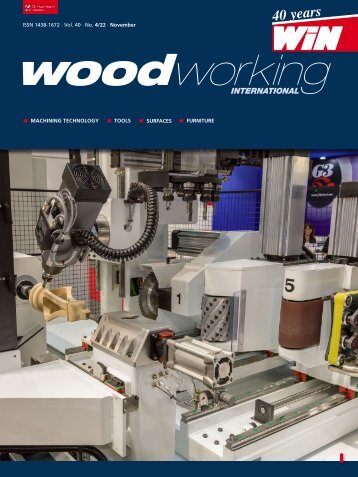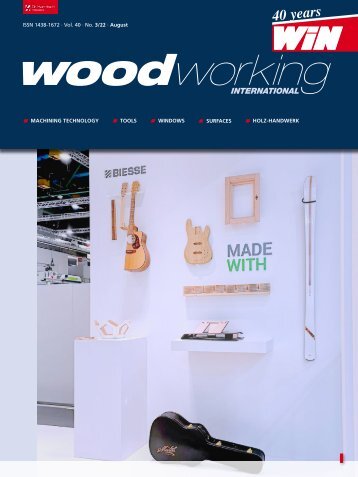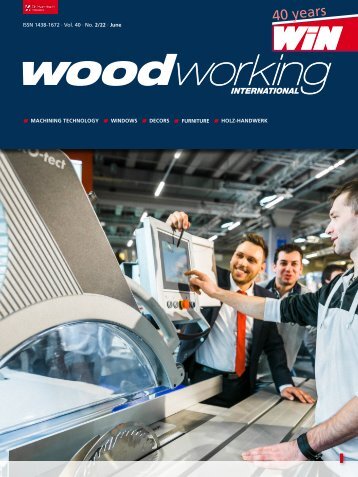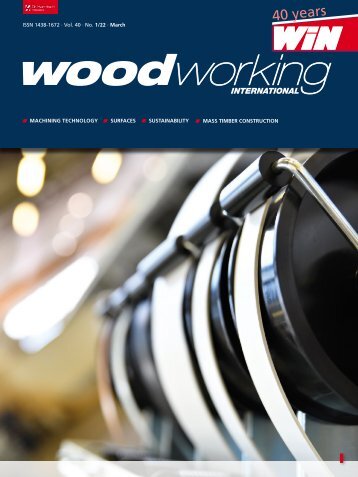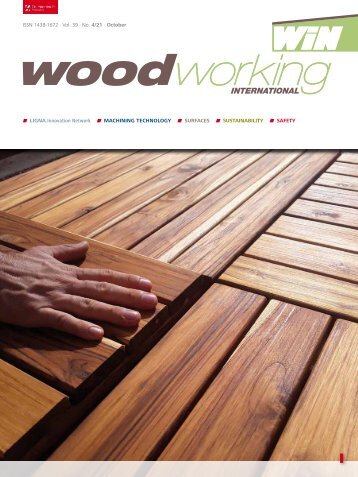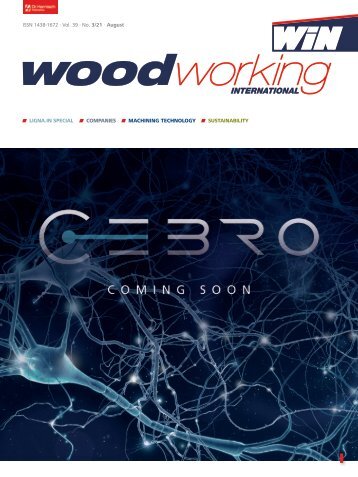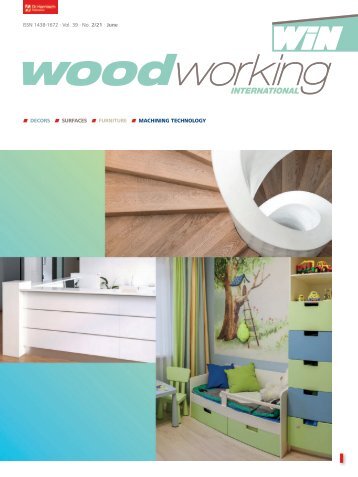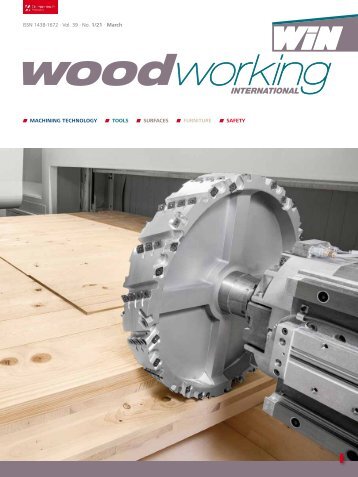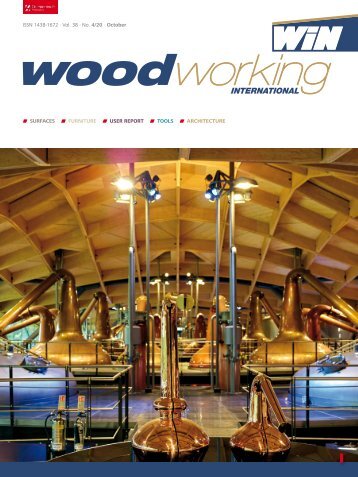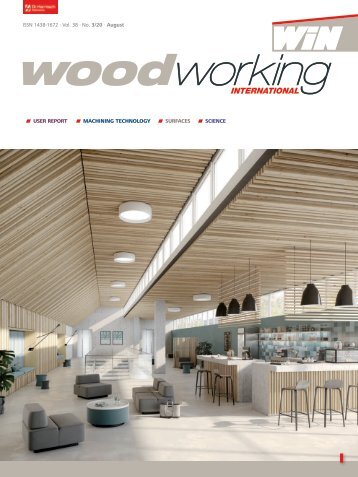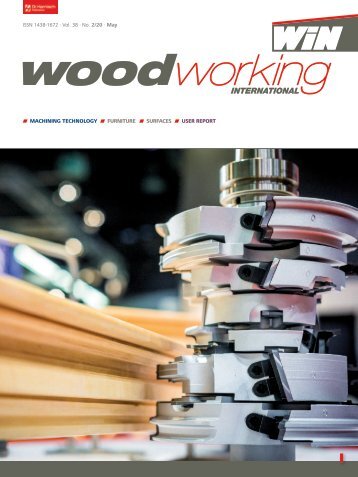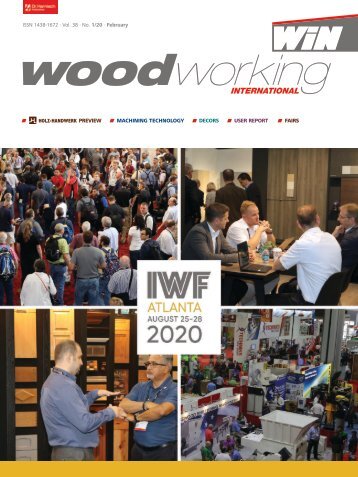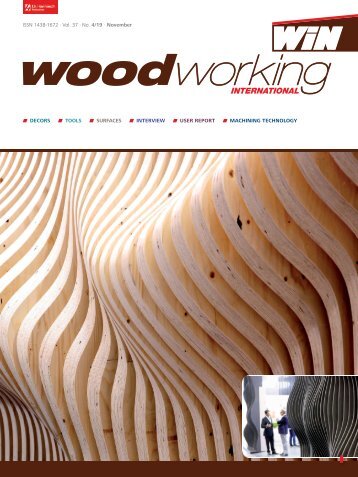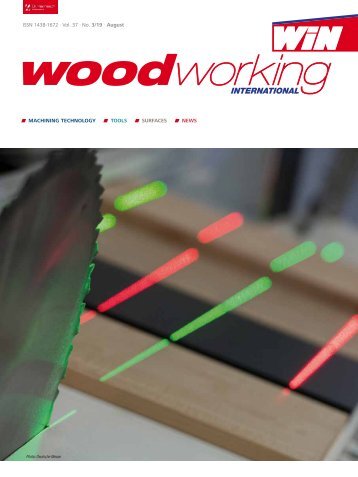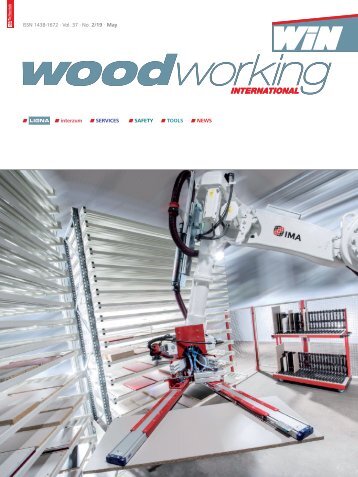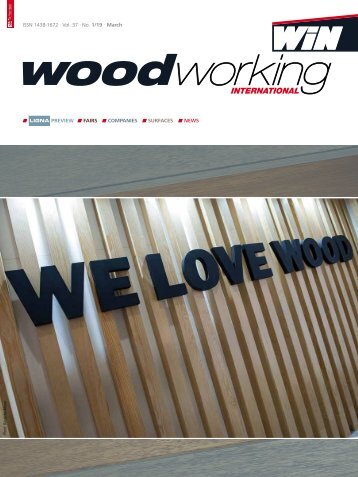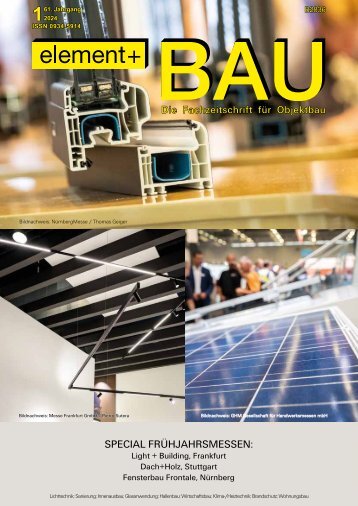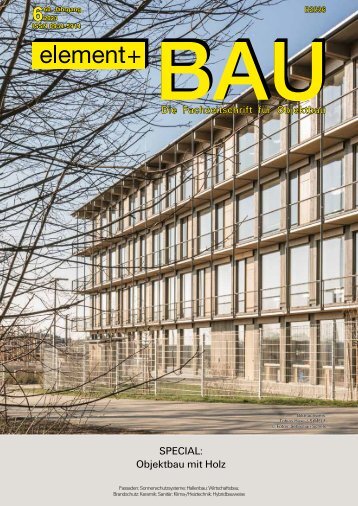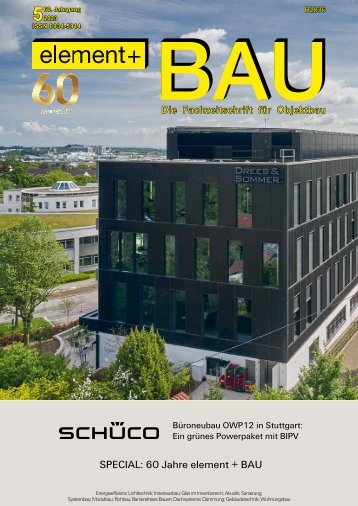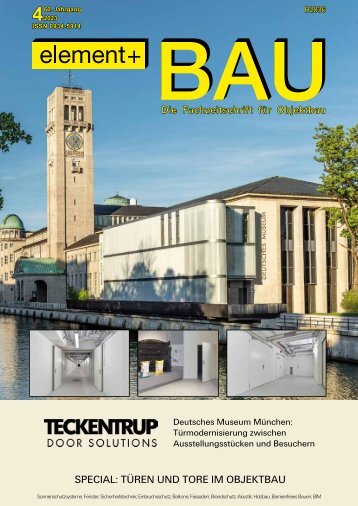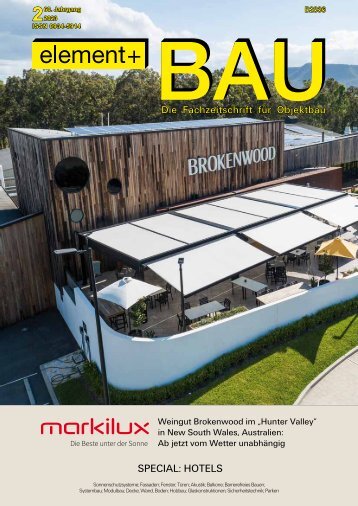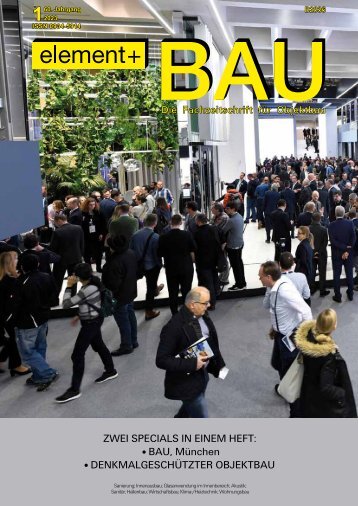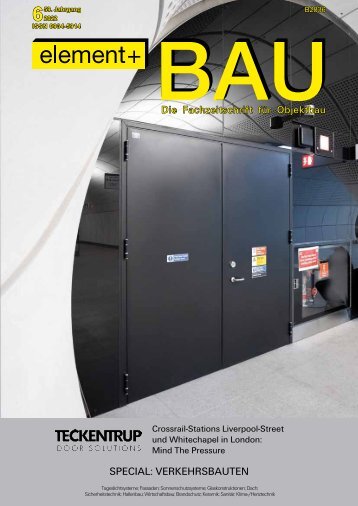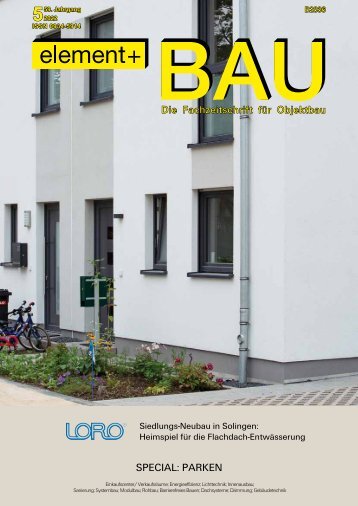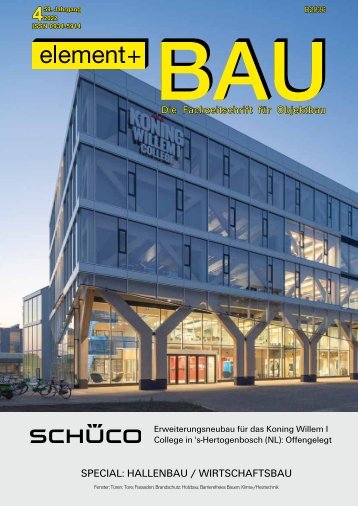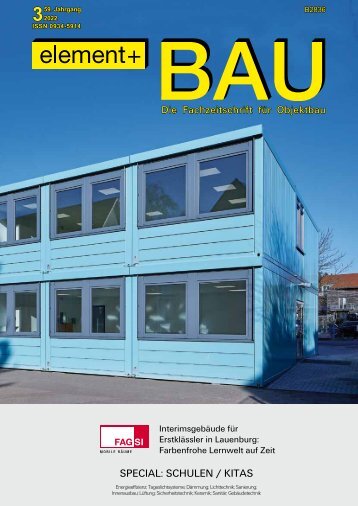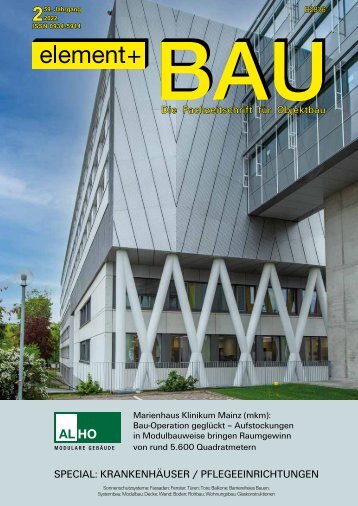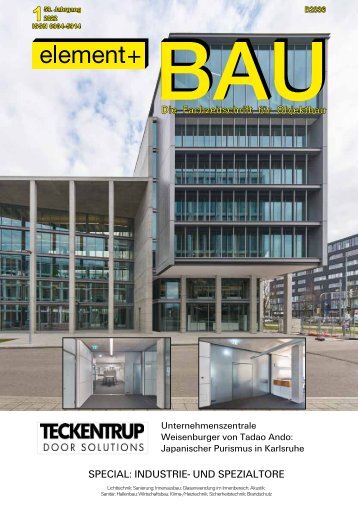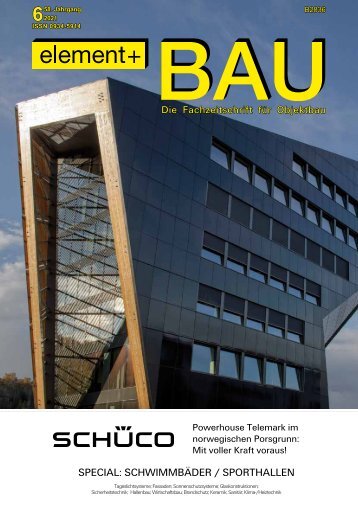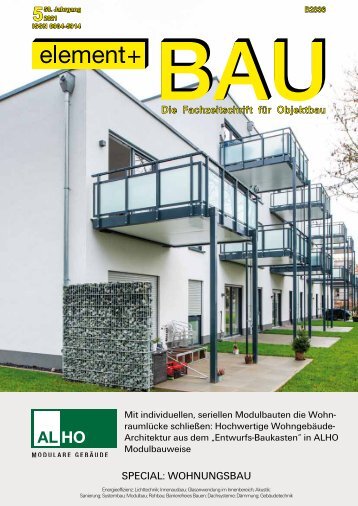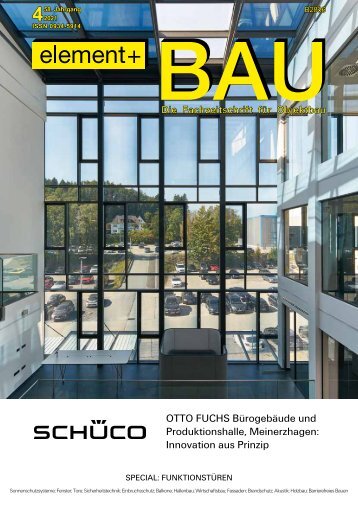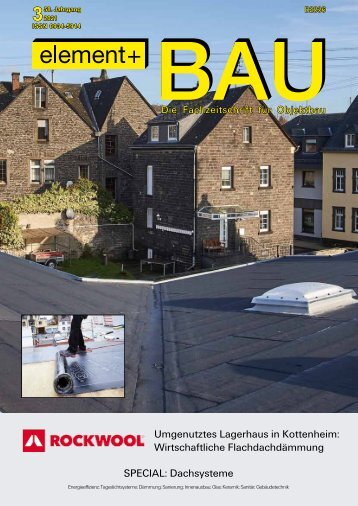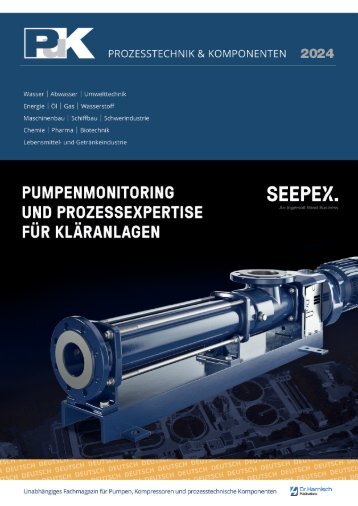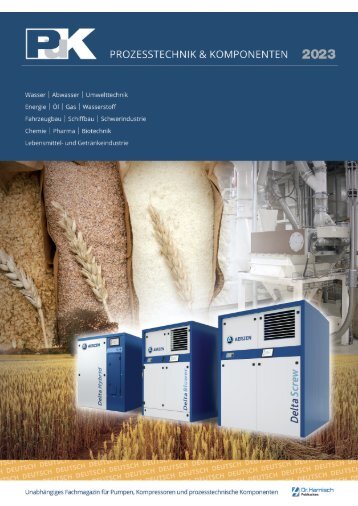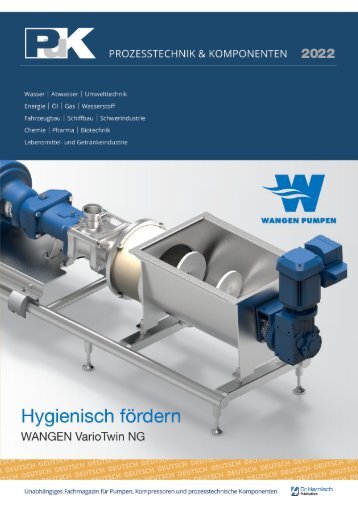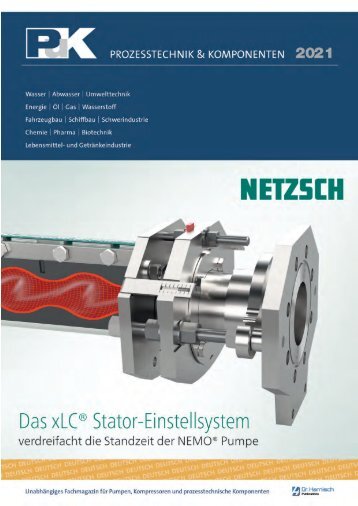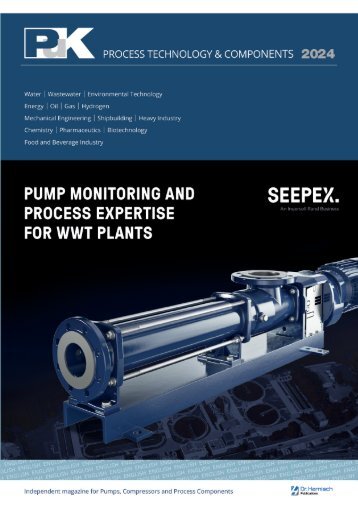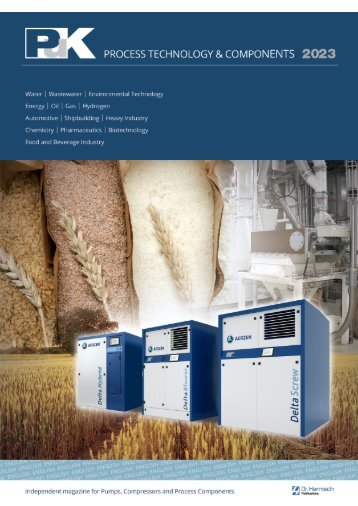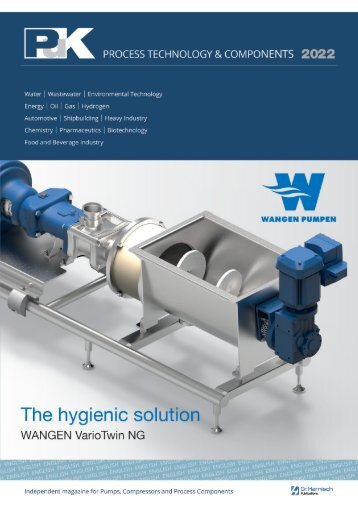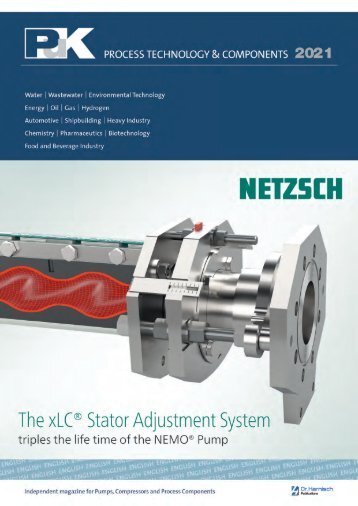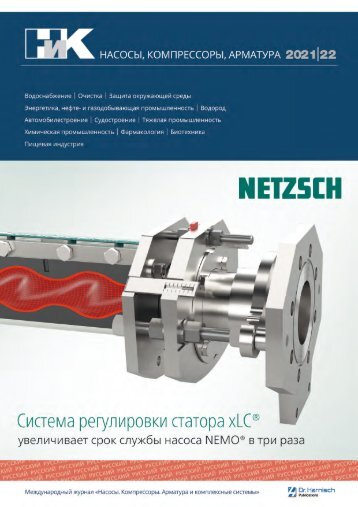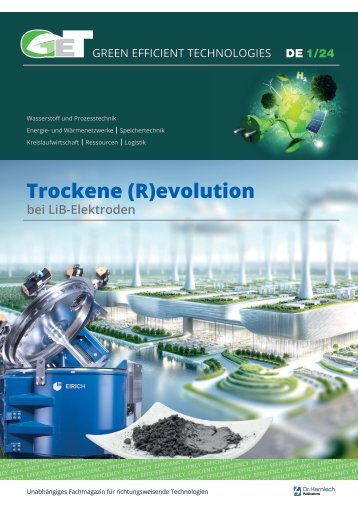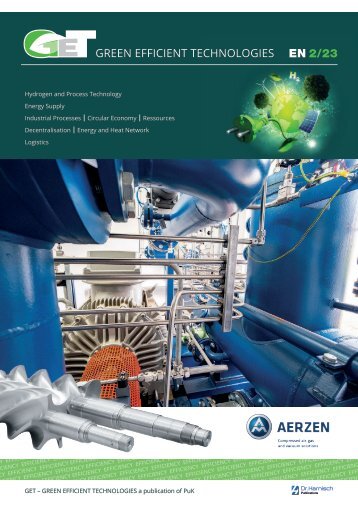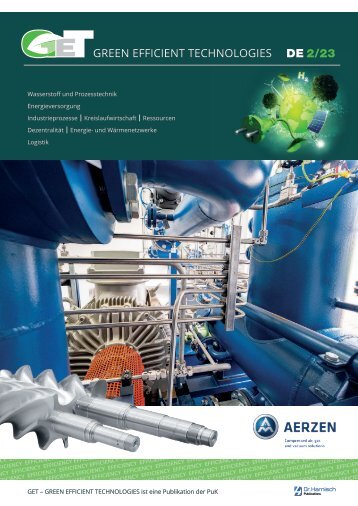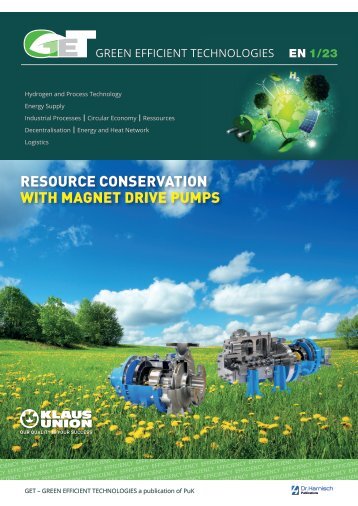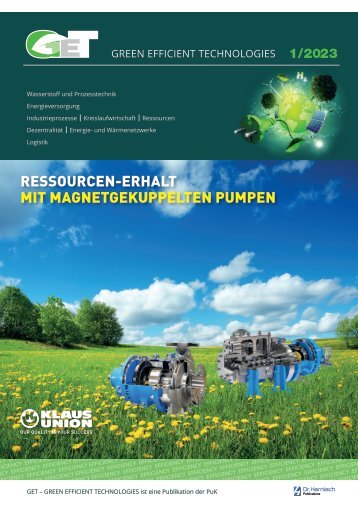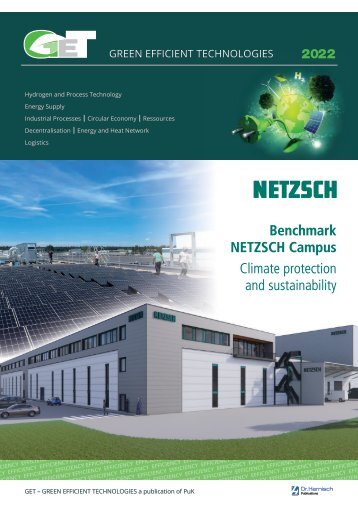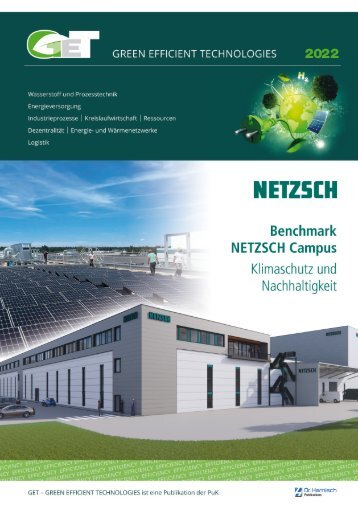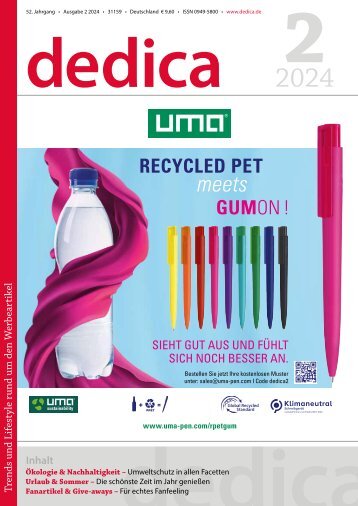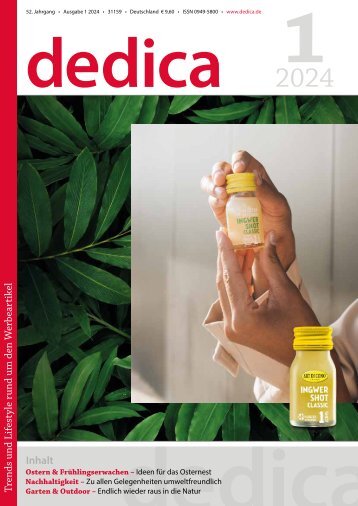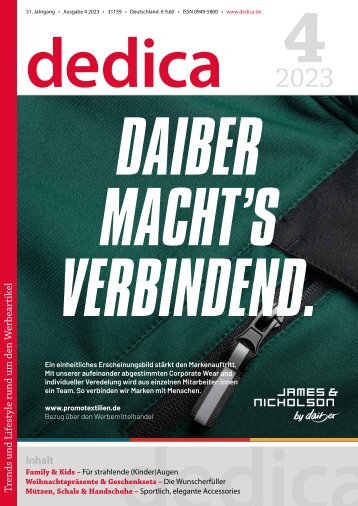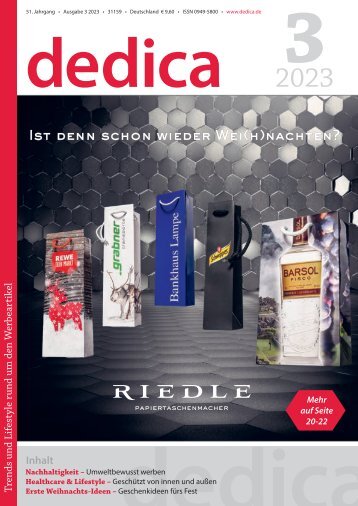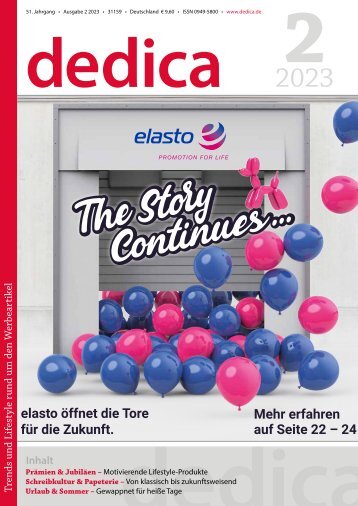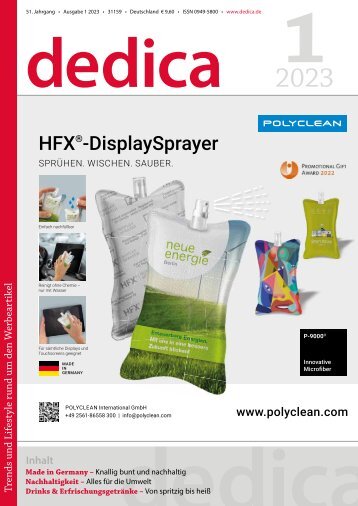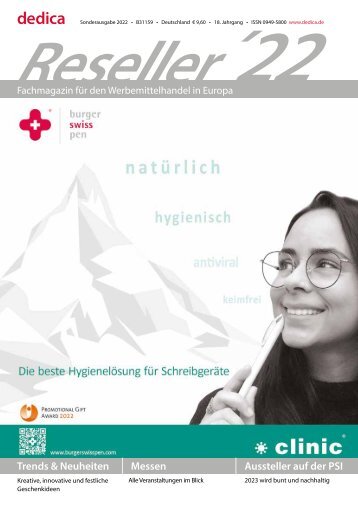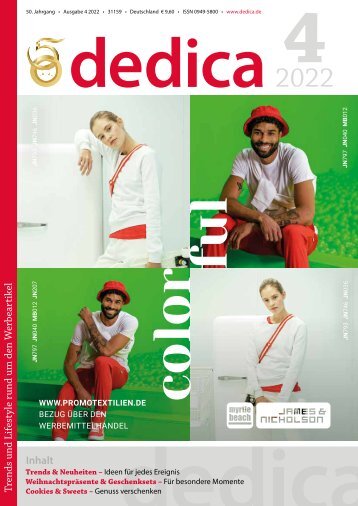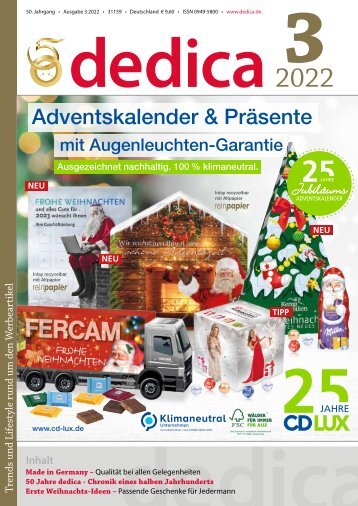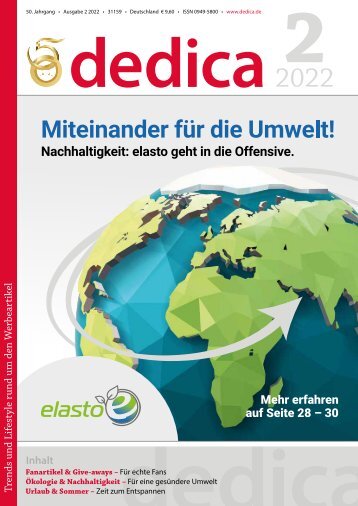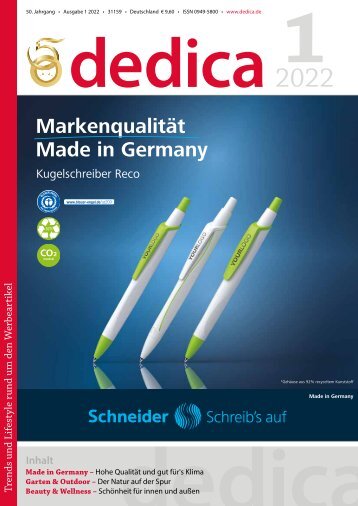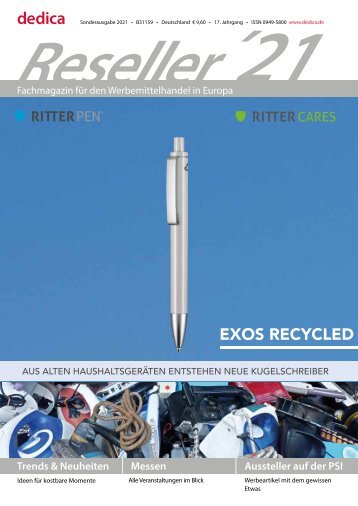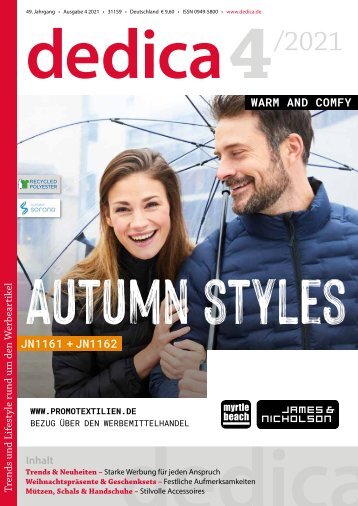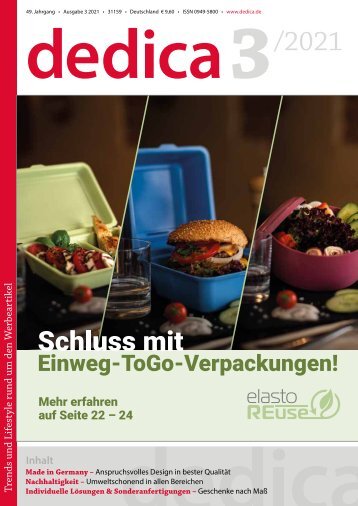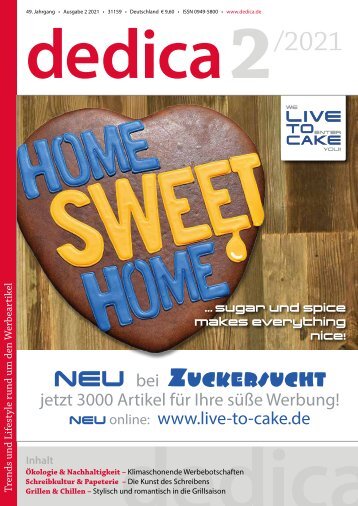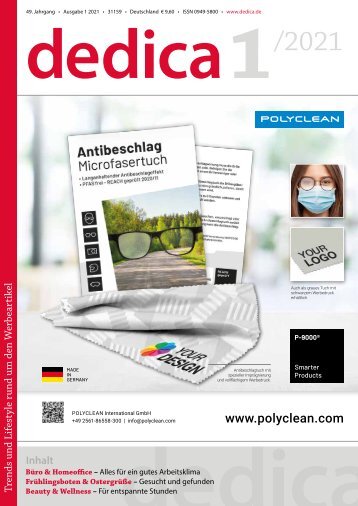food Marketing - Technology 4/2023
- Text
- Harnischcom
- Bakery
- Protein
- Ethiopia
- Processing
- Baking
- Consumers
- August
- Ingredients
- Marketing
- Products
Ingredients Back to
Ingredients Back to Baking Basics with Future-Proof Ingredients With its newly relaunched Slow Milling portfolio, GoodMills Innovation enables entirely natural baking with maximum process reliability Addressing the needs of bakers who want to meet increasing consumer demand for natural, artisan-style offerings, but also provide an extensive range of products, was the driver for GoodMills Innovation’s comprehensive revision of its Slow Milling raw materials and recipe range. Philipp Münstermann, Group Manager Craft Bakery at GoodMills Innovation, explains the rationale: “With our new Slow Milling range, we are updating the concept – natural baking – and making it relevant to emerging trends. It addresses the needs of today’s bakers and their approach to bread production in terms of philosophy and technology. As Slow Milling is synonymous with the art of baking, we consciously wanted to distance ourselves from packet mixes, i.e. the usual ‘open the bag, add water and yeast, and the bread is ready’ products. Slow Milling is fundamentally different, as it is a modular system which allows bakers to create their own bread concepts from individual ingredients - or have us create them on their behalf. We are now taking this further in order to keep abreast of developing trends: i.e. pre-doughs, long-lasting and artisanal appearance.” In contrast to baking mixes, Slow Milling calls for baker expertise and craftsmanship. It therefore leaves plenty of room for baker creativity when producing goods with their own particular character. All-natural ingredients for reliable results Naturalness, enjoyment, time, aroma and dough maturation are all part of the current Slow Milling narrative. This results in safe baking with reproducible results, and also allows for fermentation tolerances. After all, baking the way it was in our forefathers’ days poses great challenges for modern-day bakers, with ever-changing environmental conditions making consistent results almost impossible. Therefore, anyone who wants to bake entirely without aids must accept limitations: Natural variations in the quality of raw materials, different temperatures, humidity levels and possible changes in personnel all mean that the dough will be subject to fluctuations. When focusing on just a few products, this is not necessarily problematic, according to Philipp Münstermann. However, he goes on to say: “I can pursue this approach if I have a small specialty bakery, but not if I have to supply branches or want to offer a full range of bakery products, as is generally expected today. If that’s the case, I need a certain degree of baking reliability. I can create that with Slow Milling, using all-natural raw materials so that the artisanal and natural character of the baked goods is preserved.” That said, Slow Milling is not ‘plug-and-play’. The baker’s craftsmanship is a prerequisite - or as Münstermann observes: It does not offer solutions for dummies but recipes from baker to baker. Authentic taste and aroma So how is the Slow Milling kit constructed? Broadly speaking, it consists of value-added ingredients for baking technology and safety, and components for taste and aroma. Naturfrisch Goldgranulat: a partially digested durum wheat semolina that is added in swollen form to the main dough to impart excellent freshness Value-added ingredients are either flavorful or visually outstanding, and give bread or pastry an extra something special. When selecting raw materials, GoodMills Innovation therefore attaches particular importance to the fact that these are not everyday ingredients that can be obtained anywhere. Instead, they offer bakers a real opportunity to differentiate their range and provide innovative new offerings such as topquality malted flakes made from rye and spelt. For the rye malt flakes, the grain is first germinated and then dried before being flaked. This requires a long manufacturing process and results in standout products that are far superior to those where rye malt is simply applied afterwards. 10 food Marketing & Technology • August 2023
Ingredients In terms of baking technology and safety, the main focus is on the consistent quality of the baked goods, their recognizability and the certainty of their success. This is achieved with natural ingredients, some of which are physically treated such as the high-protein flour Vitalweizen which enhances normal flour by making it significantly more stable to baking and fermentation, and ensures that the dough develops good volume. Taste and aroma are achieved mainly by appropriate management of the dough - a science in itself and one known to every baker. Depending on how long and under what conditions the dough rests, and the yeast is allowed to work, different dough and, thus, product properties are obtained. GoodMills Innovation mainly provides dried sourdoughs in powder form, which make production processes such as long-term leavening, fermentation and the use of pre-doughs for bakeries entirely feasible. For example, the range includes a spelt-apple-whey sourdough, or a rye-wholemeal sourdough. By using them, the baker not only achieves a first-class bread, but also saves time in its production. Moreover, implementation in the bakery is possible with less trained personnel. Another example from the Slow Milling range is Ferment’tic. For this, GoodMills Innovation produces a wheat germ sourdough. This is deactivated by drying and then converted into powder form. In the bakery, Ferment’tic is particularly suitable for baguettes and other Mediterranean pastries such as ciabatta or grilled pastries which promise a characterful aroma, as well as an open pore and hearty crust in a relatively short processing time. The time-consuming process steps are incorporated into the production of the wheat germ sourdough in advance, thus improving the quality of baked goods in a time-efficient manner. Philipp Münstermann explains: “When developing our recipes and raw materials, we always keep the workflow of a bakery in mind and adapt them accordingly. In general, real conditions play a decisive role. If a bakery is interested in one of our formulas, our sales representatives are always available for an onsite visit, where they can put it to the test in suits. The baker can then assess whether the recipe can be implemented using his or her own equipment, and with existing personnel.” Expertise at heart In addition to the modular system of ingredients, Slow Milling also includes the expertise to apply them correctly. The programme is based on a large number of basic recipes that guarantee successful application of the raw materials. However, recipes can be modified or extended according to individual needs. Philipp Münstermann says: “All recipes are based on current trends and market conditions. We have designed them so that they can be easily implemented in the bakery – but, of course, a baker can also add seeds, malts or similar ingredients to make them distinctive. A good example of a bread recipe would be our San Francisco Sourdough Bread, which is so-called “Herzstück”. Originally, this type of recipe, as the name suggests, comes from America. There, wheat sourdough is managed in such a way that it develops strong acidity, resulting in a very distinctive bread flavor. We have adapted this approach to our raw materials and developed a corresponding management scheme. For this, we use the so-called Naturfrisch Goldgranulat and a wheat malt flake, which buffers the acid peak and introduces a certain sweetness, thus ensuring a sweet-sour combination. In addition, the dough is kept for an extremely long time, with the pre-dough fermenting for several hours and the main dough then fermenting again overnight. The result is a highly aromatic bread with excellent Golden Morning: a baking agent that is free of technical enzymes yet still allows for the creation of authentic baked goods freshness retention properties and an appealing pore structure.” Another recipe example is the so-called Dinkel-Wölkchen - fluffy, light rolls made from spelt flour. They contain a natural spelt baking ferment - a clean label baking agent specially adapted to spelt. The result is rolls with a very fluffy crumb and a good freshness. Innovation, raw material use and process optimization The Slow Milling recipe catalogue includes countless other suggestions and concepts that bakeries can draw on. But they can also turn to the experts at GoodMills Innovation if they have specific questions. Philipp Münstermann notes: “We find that with new generations of owners, bakeries often look for innovative new strength. Here, we can offer advice and help with our recipes. Often, however, the question also relates to the cost of ready-to-use mixes: If it is too expensive, we look for alternatives e.g. mono-components-recipes - here, too, we can provide effective support. Fluctuations in raw materials are also a concern but we can work together with bakers to adapt ingredients and recipes accordingly.” fmt food Marketing & Technology • August 2023 11
- Seite 1 und 2: 4/23 Vol. 37 • 31377 ISSN 0932-27
- Seite 3 und 4: Editorial Hidden in Full Sight Ther
- Seite 5 und 6: 7/14/23 12:00 PM Vol. 37 • 31377
- Seite 7 und 8: Cover Story Tailor-made drive solut
- Seite 9: Ingredients endlessly UNIQUE Your w
- Seite 13 und 14: Ingredients Moreover VIVAPUR® HPMC
- Seite 15 und 16: Ingredients IFT FIRST Focuses on th
- Seite 17 und 18: Ingredients director. “Depending
- Seite 19 und 20: Ingredients Barley-ears_©Elena Kor
- Seite 21 und 22: Ingredients Keeping joints flexible
- Seite 23 und 24: Ingredients FMCG Gurus: The Sports
- Seite 25 und 26: Processing air exchange is necessar
- Seite 27 und 28: Packaging food Marketing & Technolo
- Seite 29 und 30: Processing processes and covering t
- Seite 31 und 32: Processing NETZSCH has undoubtedly
- Seite 33 und 34: Processing The metal detector Mitus
- Seite 35 und 36: Packaging Stocked by most British s
- Seite 37 und 38: Packaging Protected geographical in
- Seite 39 und 40: style of writing was refreshing and
- Seite 41 und 42: Marketing million trade visitors ha
- Seite 43 und 44: Marketing known coffee growing area
- Seite 45 und 46: Marketing IPD at Anuga 2023: Many A
- Seite 47 und 48: Marketing for Krones came quickly a
- Seite 49 und 50: Events Start-ups: Authentic added v
- Seite 51 und 52: 7/14/23 12:00 PM Vol. 37 • 31377
Unangemessen
Laden...
Magazin per E-Mail verschicken
Laden...
Einbetten
Laden...




















